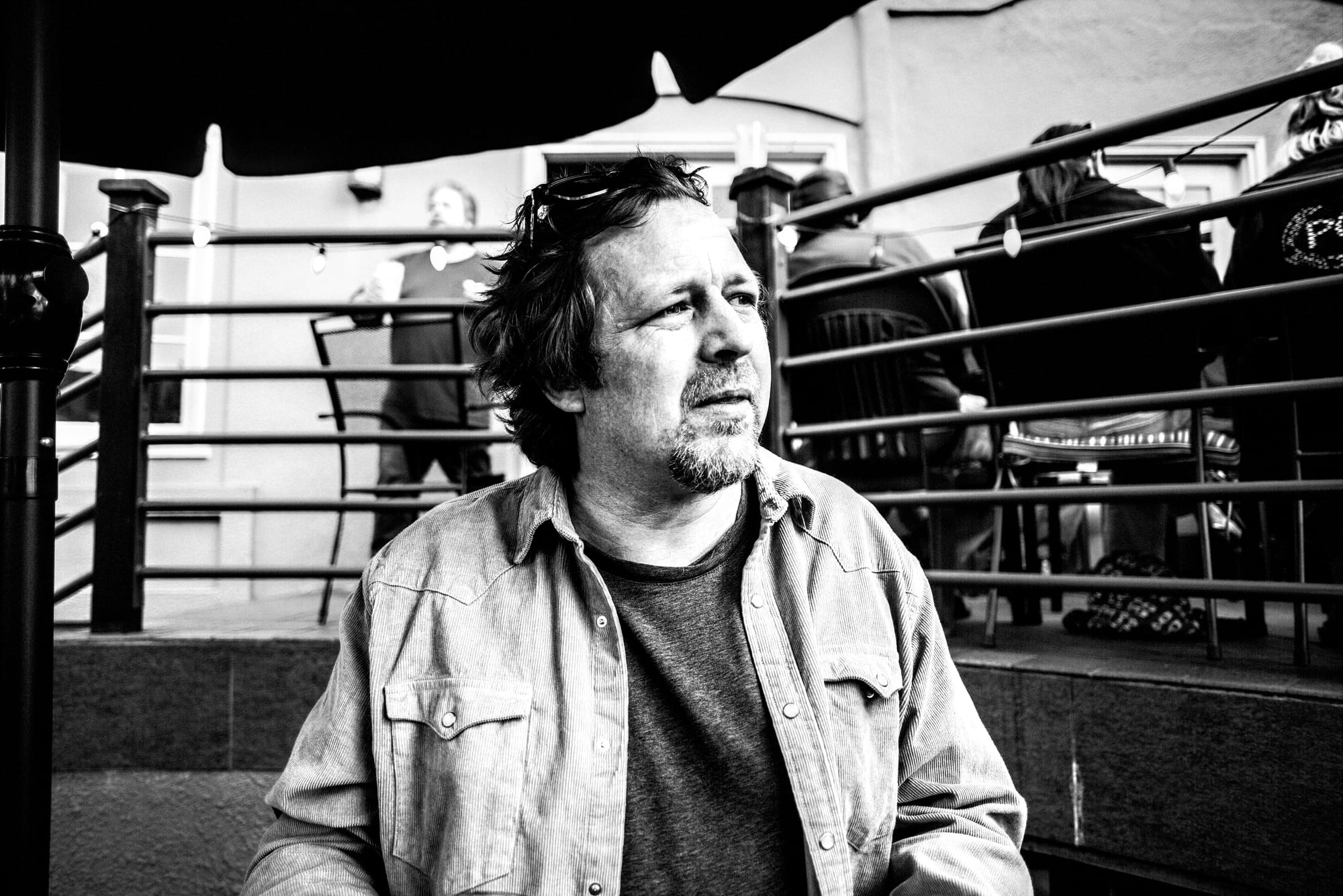A Pachinko Life
A deeply personal essay about computers, music, and life challenges. Documenting growing up as a troubled teen in the East Bay in the 1990s.
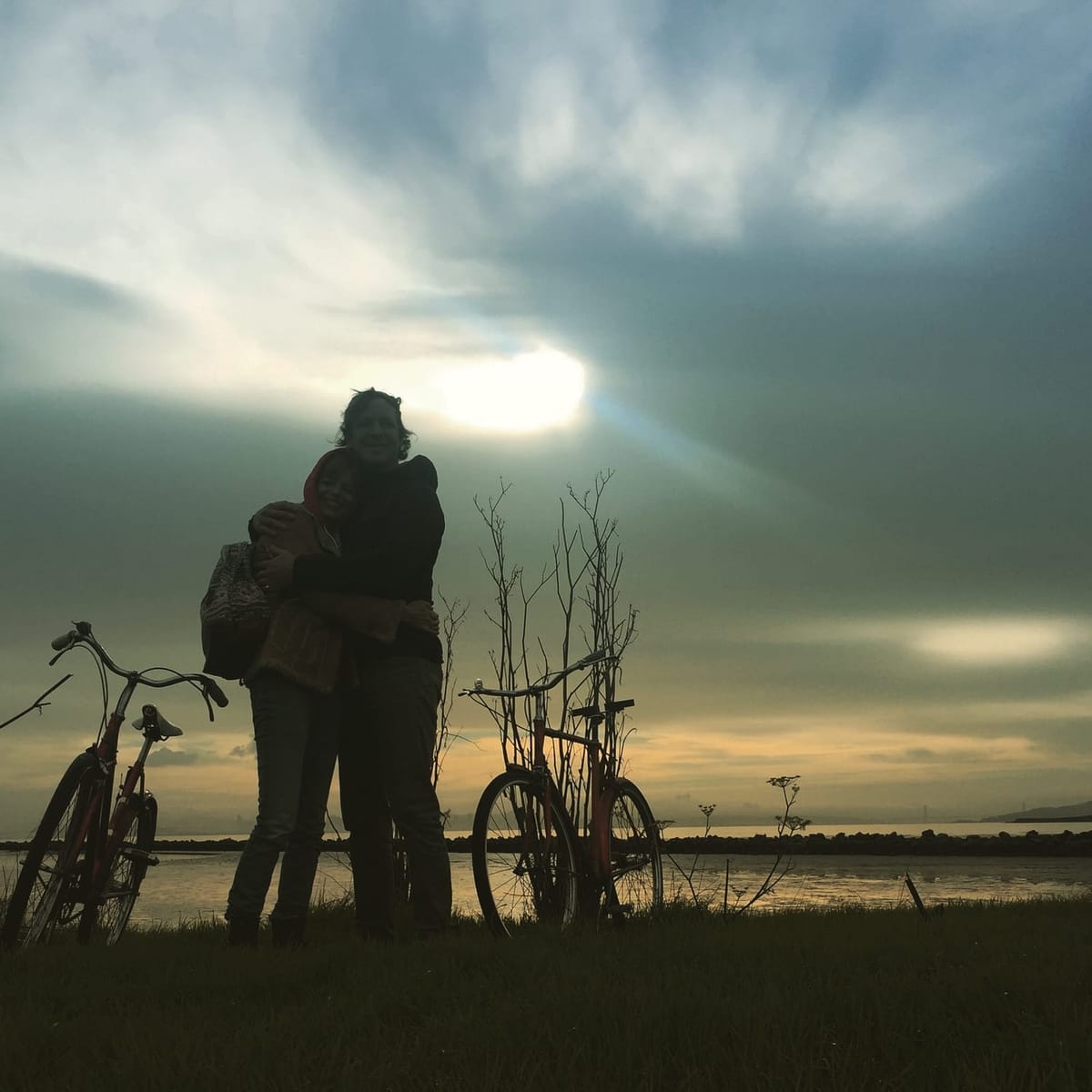
A deeply personal essay about computers, music, and life challenges. Documenting growing up as a troubled teen in the East Bay in the 1990s.
All it takes to be an artist is child-like wonder, and a little brain damage. Actually, scratch-that you really don't need the brain damage. You can forgo that. This isn’t a story about big-names, long nights in a locked-down studio with groupies and blow. I suffered only briefly under the illusion of possibly becoming famous, and it was long ago.
I never attained the dizzying heights of some recording musicians, and I also never plumbed the depressing depths that many of those artists subsequently have. In a lot of ways, my story is pedestrian, subtle. If you applied standard normal distribution to musical success, it would have an exceedingly long tail on the left-side, and my musical career certainly exists somewhere in there.
In this article I don't drop any names you're likely to know, and I'm not writing this as a mere poster-board advert for my own music.
This story is a reflection on how computers and music have affected me, and how my career choice and alcoholism punched some holes in my life’s creative output.
You can choose to do anything you want in life but society and popular opinion might not swing in your favor. In fact, it probably won’t. I am not above catering to an audience, but my audience is so small that I have a lot of creative leeway. It's a mixed bag, and I think that's the way many musical careers go. I think it's relatable for a lot of music artists in any genre.
I don't know why I'm telling this story. I guess I have a little perspective on it now, the things that happened in my life, all the people and places. I feel a little self-conscious in the telling of this piece of my story. I don’t look back at the past and wish that I could repeat it, I’m mostly glad for the chapters that are behind me. I do have a bit of nostalgia for the East Bay as it was in the 1990s, but I don’t kid myself that it wasn’t without its problems.
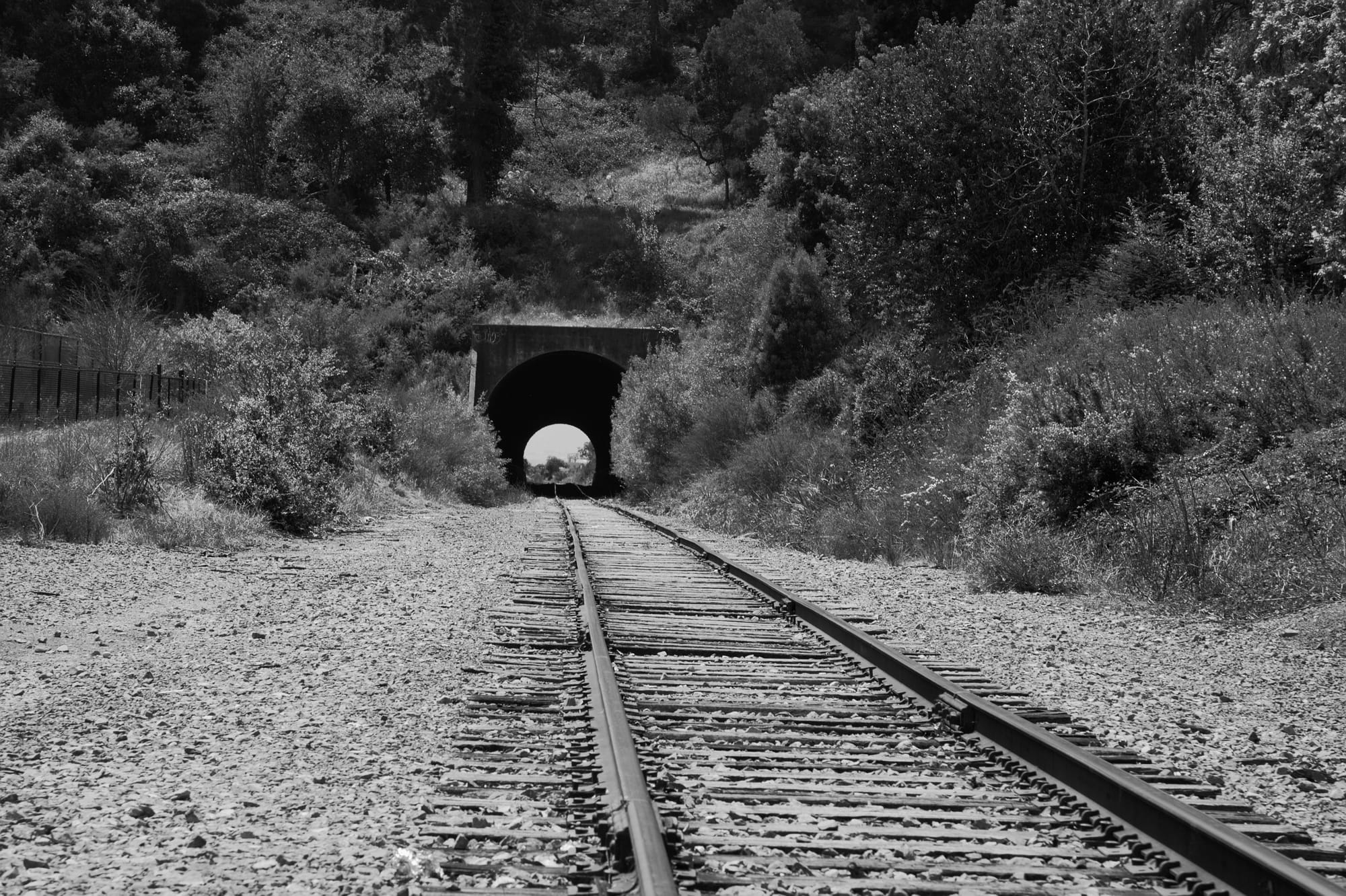
It’s been a long hard road to get where I am. I do regret some things deeply, but I try not to wallow. Like Eric Andersen says,
time is like a freight train. You can strap yourself to the front or get dragged behind. That train is running out of track, and you never know just when it will.
In life, there are great arcs. This is one of mine, the interplay of alcohol and music. They are not mutually exclusive. They are correlated. Alcohol strangely opened doors in my life that music helped me step through. Later in life, I saw that alcohol was merely a crutch, while music was a true passion. Of course, these are not the only two major factors affecting my life. There are others good and bad that I could go on about at length. But these are the forces that I want to discuss now.
Gustav Holst and The Planets
In 1984 we lived in a tract composed of re-purposed army barracks. My parents paid a hundred bucks a month for a two-bedroom apartment. It was called "Married Student Housing" at the time. Now those barracks have been dozed and it is now called the UC Village. The interstitial space between each apartment block had a courtyard, and across from me in that courtyard was another kid playing with Legos. We became friends. I started out at the age of seven listening to The Beatles and The Beach Boys because that's what his older brother always played.
When I was eight, my parents bought me an LP of "The Planets" by Gustav Holst. I listened to that countless times for a year. Then I discovered my father's LP collection. He had stuff like The Talking Heads, The Police, Santana, David Bowie, Men At Work, but he also had Peter Tosh's "The Toughest" and several Frank Zappa albums. He had a Dual record player from Germany, and a TEAC double-cassette deck with Boston Acoustics loudspeakers and a JVC receiver, it was a proper hi-fi setup.
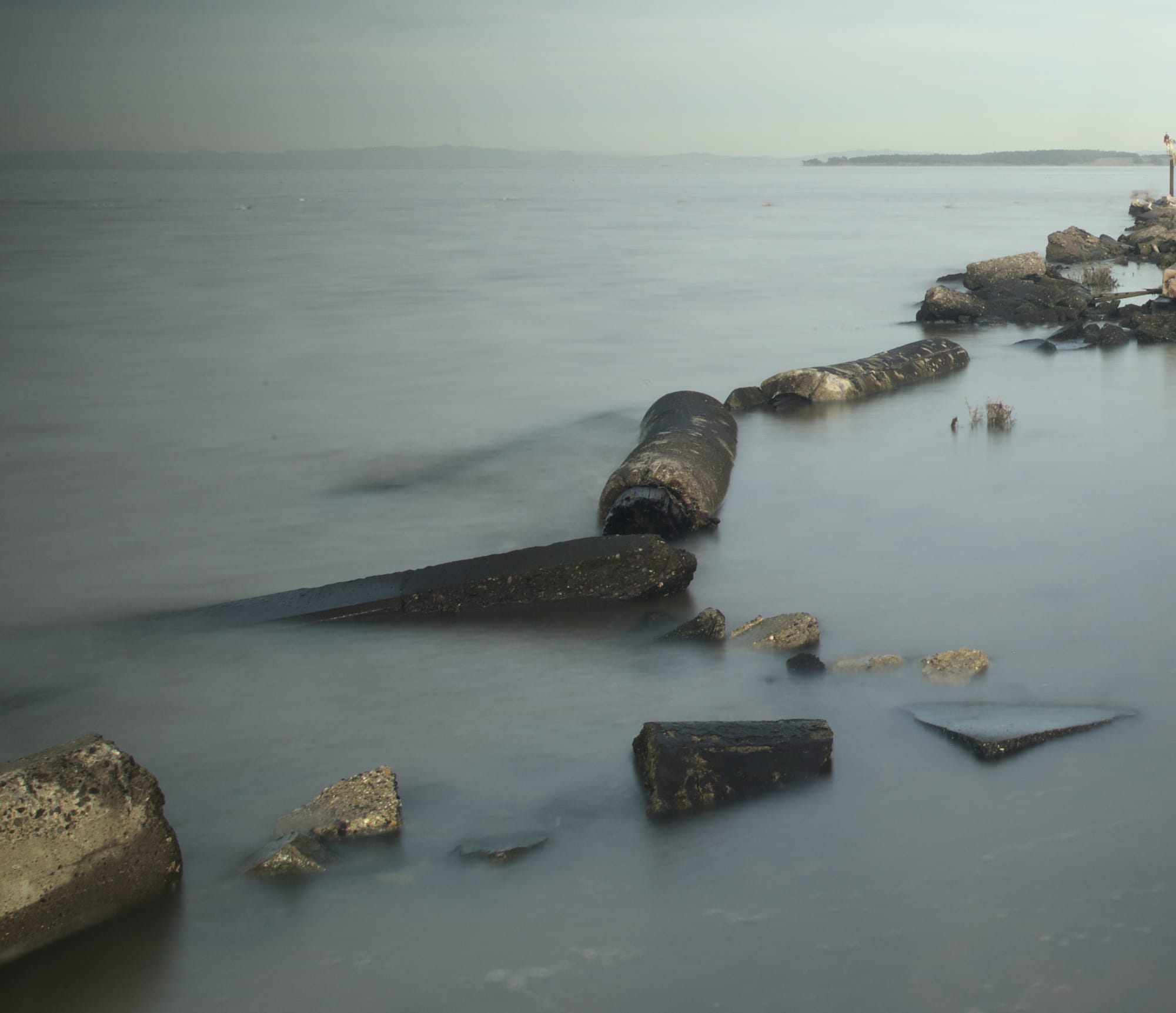
My parents tried to get me to sit down for piano lessons but I was an unruly child. It didn't take, unfortunately.
Anyway, I started dubbing tracks that I liked off of his albums, making mix-tapes around age ten, but I quickly grew bored of his collection. Then one day I tried an experiment, I used the up and down buttons instead of the presets on the radio. I was surfing through bands and waves of static and smaller radio stations. I came across a station that was playing stuff that I had never heard before. Never heard anything like it! I don't remember what it was but I swear it might've been Einstürzende Neubauten. I had stumbled across KALX Berkeley college radio.
I put a blank tape in right away and began recording. I heard Ministry, Depeche Mode, Yaz, Negativland, John Cale, Leonard Cohen, post-punk noise music, experimental electronic music which would later be called house and techno, I heard local artists play live, artists from far off countries with names I couldn't pronounce. I was in heaven, it was an endless stream of new music curated by people slightly older than myself. Wow! They had the pulse! I liked so much of what they played. It was amazing, and I was recording it! I also found KZSU Stanford and KUSF San Francisco around this time.
By the time I got to middle school I had about thirty mix-tapes that I had made from music from my father's collection, but mostly from college radio stations. Boy, I wish I still had those tapes! That would be solid gold right there.
I had band class in sixth-grade, and my parents asked me which instrument I would like to start learning, I told them without hesitation, Guitar! They got me a trombone. I was so disappointed. I knew three notes on it though, "wah-wah waaaaaaah."
When I reached ninth-grade I was going through many changes. I gave myself a mohawk and dyed it blue, but because I'm blonde it came out green. I discovered my parent's liquor cabinet, and girls. Probably in that order. I pawned my trombone for a bag of weed, which is funny because I hate the stuff, but younger me had to learn the hard way. My parents were pretty pissed around this time.
I was even more pissed though, and I'd show them.
High School and 924 Gilman
Do I have regrets about not learning piano when I had the chance at ten years old? Sure I do. I'd probably be a pretty good player by now, and I might've begun a career in music instead of bouncing around in the workplace dissatisfied for decades. Do I have regrets about pawning my trombone at age fourteen? Not really. I mean, I could've joined a jazz lineup or maybe a ska band. But I think my true interest in creating music can be realized most effectively with the keys.
Anyway, back to the story, where was I? Oh yes, I was an angry self-styled punk rocker freshman with a trench-coat, mohawk and combat boots. Punk rock wasn't actually my thing, I listened to punk rock and went to a bunch of shows at 924 Gilman (and got tinnitus) in 1991 when the cover charge was a dollar, and membership was another dollar, but I felt that none of the bands had the flexibility, range or imagination of The Clash. They just couldn't measure up in my mind. I think a lot of punk rockers my age glossed over the album "Sandinista" by The Clash as an aberration, but I thought and think it's the most punk rock thing ever. Besides that I didn't like large groups of people, I didn't trust them. I wasn't a joiner. I was kind of a loner.
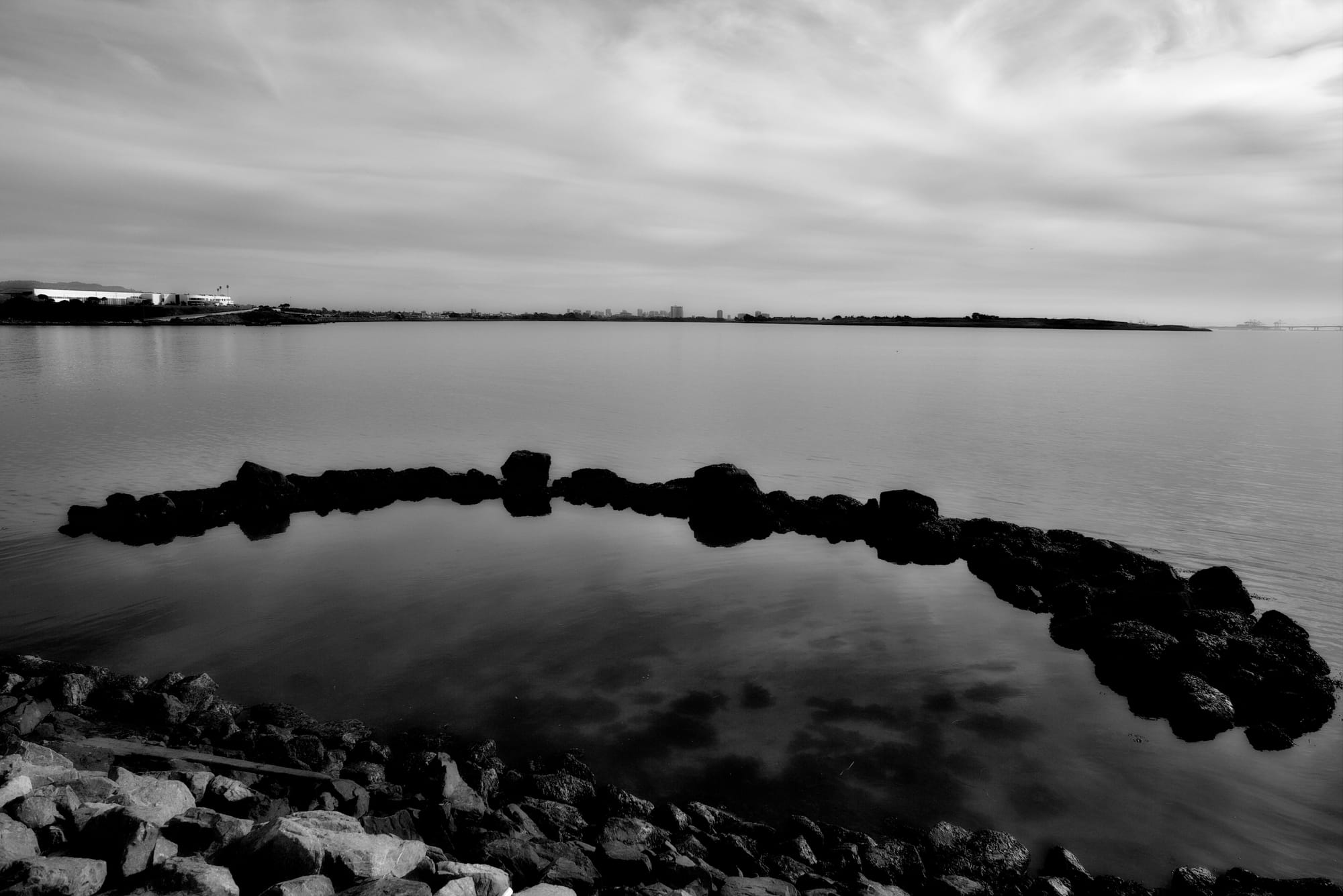
No, my first cassette purchase was Ministry's "The Land Of Rape and Honey." I listened to it over and over until I wore it out. And of course I had my mix-tapes that I made from my father's record collection and college radio. I always had two or three of them with me, along with a bottle of hard liquor in my backpack nicked from my parents' cabinet. I would skip class and drink and listen to my headphones. I guess I was a little anti-social. I got along with older people well, but I felt that people my own age were mostly idiots.
I was getting into physical altercations because I was defending myself. For some reason, everyone decided this was my problem. I got into trouble early on in my sophomore year and my parents transferred me to a continuation charter school that was several blocks away from the main high school.
Rumor was they were all fuck-ups. I was a little scared, but mostly elated! The school was composed of portable buildings hastily set up in a field by the bleachers of a quarter-mile track. It was called MacGregor. MacGregor High had roughly fifty students. There were about a half-dozen teachers and staff. Class went from eight A.M. to half-past noon, with a twenty minute smoking break on which a teacher would sometimes join us.
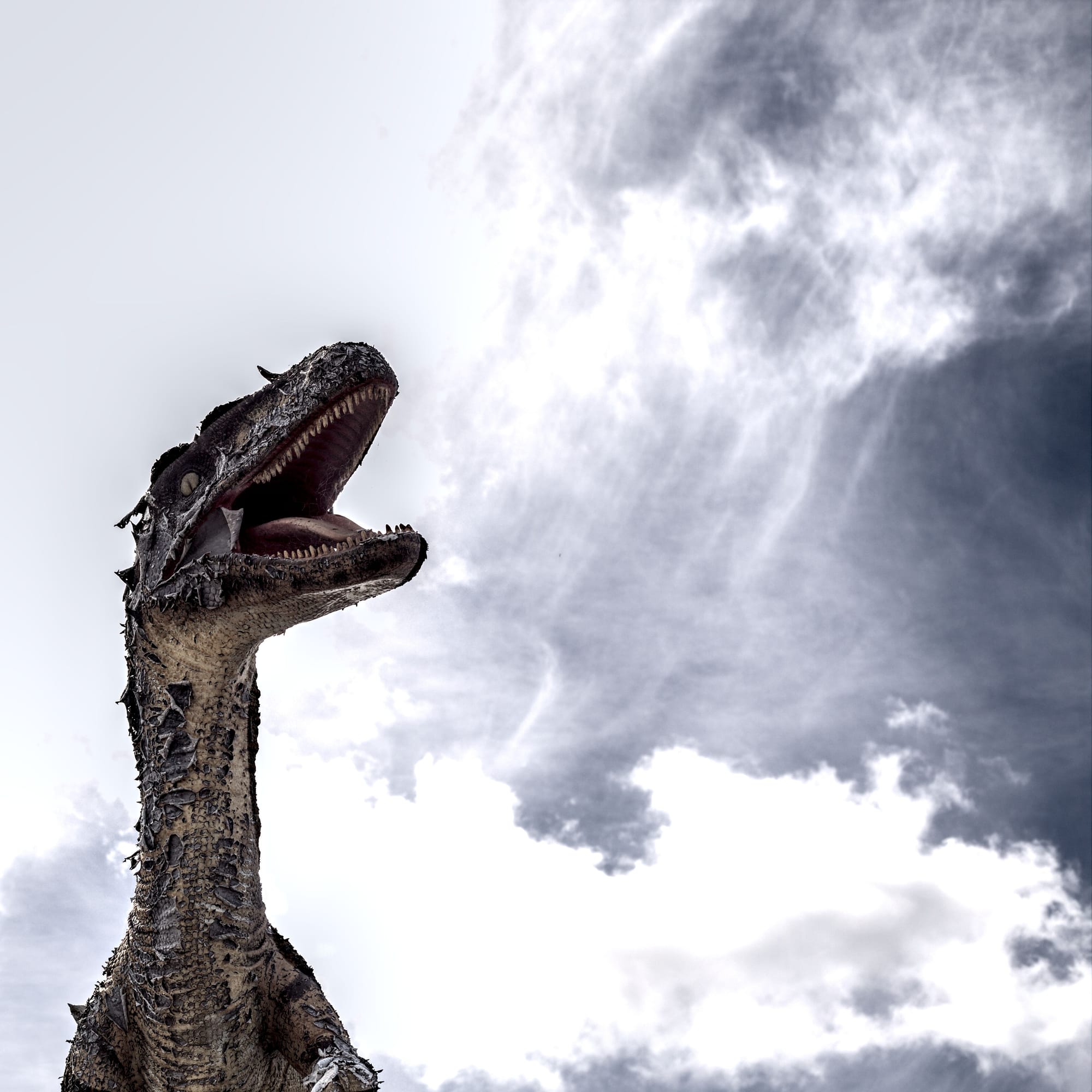
One of the staff was this old lady named "Mrs. Gimlin," and as far as I could tell, her only duty was bringing us juice, bagels and muffins. On my first day at the beginning of school while everyone was in orientation, I poured twenty wax cups half-full of orange juice, and I topped them off with vodka from my backpack. I made sure to pour a few virgins for the staff. I set them all on a tray and brought them into class. The principal smiled at me, I smiled back and handed her an orange juice. Then I passed out the screwdrivers to all my classmates. Some of them winked, some of them laughed, some high-fived me, it was great!
Yes, me and alcohol were like old pals who were up to no good, and frequently got away with it. Every time I drank some hard stuff it was like giving myself a high-five. I was laying down dangerous track in my young brain, and I would soon find out just how precarious a situation it was that I was getting into.
In the meantime, I was being introduced to a lot of music I hadn't considered carefully before, and much of it I'd never heard, Nas, KRS-1, De La Soul, A Tribe Called Quest, and a lot of other stuff in that vein. I soaked it up and changed my style a bit. I put on my Carhart jacket which I previously only used going to job-sites with my father, and topped it off with a beanie.
Berzerkeley and Wall Berlin Café
High school was one thing, home life was another. It was wack, dare I say. On the weekend I would jump out my second story window, and skate down the hill to Telegraph Avenue in Berkeley. It would take me an hour to get from Dwight Way to campus five blocks away because I kept bumping into classmates, people from other schools, and people I knew from the "Ave."
Country Joe MacDonald's son was a jolly guy with a boom-box on his shoulder, always bumping hip-hop. He went to Berkeley High. "Rare" was allegedly a Vietnam veteran, he would do shirtless handstands and yell, "rrrrRRRARE," AJ was a run-away vagrant who was always on LSD, Hate-man was a legendary character who would always yell "Fuck You!" The theory went that if you can't say those words, you can't say "I love you." I'd yell it it back to him. Preachers with sandwich boards, a large group of naked people with backpacks walking casually down the street, Hari Krishnas, the Hell's Angels would sometimes roll through. It was a crazy place, always busy and bustling with interesting people.
I found a café called "Wall Berlin." I was under-age and didn't have a fake ID, but I'd eventually find my way over fences into frat-parties nearby. That turned into walking into any party I found with a bottle of something. The trick was to walk in like you were supposed to be there, if the party was big enough, no one was the wiser.
Sometimes me and a group of teenage wastoids would skate down Bancroft and come back up Dwight hanging on to the bumper of a city bus. Or we would take the party to the top of a nearby parking structure and let the security guards try to chase us back down while we spat and flipped the bird. Sometimes we would divert traffic on major intersections with traffic cones, or pull a discarded couch into the street and set it on fire. We rarely got into trouble because we knew where (scatter) and which way (uphill) to run from the cops and security. I would pass the daylight hours on "The Steps."
I would sit for hours and hours and just stare at the wild scene unfolding before me on the ASUC steps at Bancroft and Telegraph. Of course I had a bottle of something with me. I'd pour it into a soda cup and suck it through a straw.
My friend John Michael Jones was about thirty-five, but he looked sixty. He was an emaciated black man with dreadlocks and a pock marked face. He was a boxer before he became an alcoholic, and he was my best friend on the Ave.
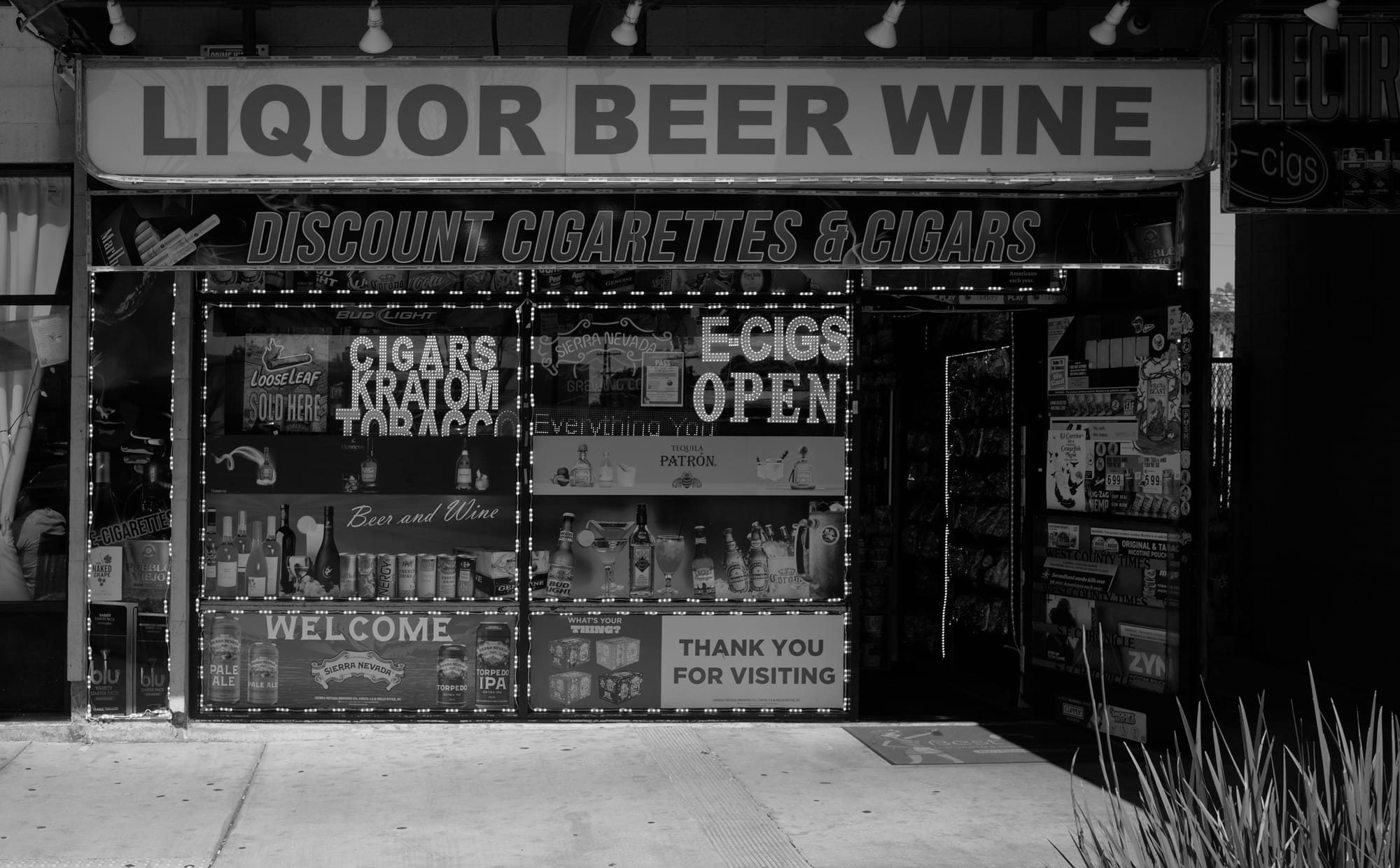
I'd give him whatever money I had leftover after I bought a burrito and we'd go to the liquor store to buy a couple of 40s of "Old E." Old English 800 malt liquor. Sometimes I didn't have any money and we'd steal it. One time he strong-armed the cashier.
He grabbed a bottle from the fridge and yelled at him with so much vitriol the cashier just told him to just take it and go. With JMJ, I knew I was drinking one way or the other and that was good enough for me.
We would drink by the arcade in the ASUC plaza, yes there was an arcade, it was called "The Underground" because it was below ground. Me and John Michael would play dominoes and drink at the picnic benches. We kept a snide commentary going about the passers-by, laughing at the names we made up for unsuspecting people. We'd sometimes yell them out.
There was a large drumming circle with perhaps thirty participants happening in the plaza and I was always tuned in to it. Eventually, after a few games of dominoes I told John Michael I was going to stay and hang out with the drummers. He said goodbye and someone handed me a cowbell and a drumstick.
I couldn't keep time worth a damn, but it didn't stop me from trying. I was cautious and respectful, I played quietly until I found something that worked. I always tried to find a pocket, and I sometimes did. Being in the pocket was an exhilarating feeling but I couldn't hold on to it for long. I learned from some of the elders that this circle had been going since the '60s. It's long gone now, along with the arcade, most of the characters on the Ave and soul of Berkeley, I think the University of California is largely to blame. But it's also the times we're living in now. It's a different world today. Largely for the worse.
Anyway, I was eventually allowed to play a conga. I learned how to play to some extent. I learned guaguancó, a type of Cuban rumba, merengue, a traditional rhythm and dance from the Dominican Republic, and a few other rhythms that I have since forgotten. Those old guys were steeped in traditional rhythms, dances and songs from around the world. It broadened my perspective and appreciation for music.
I took a free class in People's Park on Afro-Cuban and Latin percussion. A few months later I bought myself a pair of congas. They were the cheapest I could find, Toca Players fiberglass congas, and a stand. I thought I was Tito Puente. Ha! I don't remember how I got to the Plaza with my congas when I didn't have a driver's license, I must've taken the bus. What a scene.
My burgeoning alcoholism was overtaking my budding interest in music. Spoiler, music eventually prevailed but not for many years.
One day, I saw John Michael by The Underground, he looked kinda fucked up. More than usual. I told him point-blank, "John Michael, if you keep drinking like this, you're going to die." He met my eyes and said, "I know." Two weeks later he was dead.
It was a groovy scene on Telegraph Avenue, but the truth is a lot of people didn't make it.
Psychedelic Dungeons
When I was seventeen, I found myself living in a basement apartment in Oakland on Harrison Street pretty close to downtown, but closer to Chinatown. I'd always get dim-sum for breakfast. I had befriended a woman at the café who was a little older than myself. I think she was twenty-six. She was so cool. I followed her around like a pup. She lived with three other people, all Polish-American. The freezer was stocked with Stolichnaya vodka, and the fridge with pickles. We would have raucous parties.
We began by toasting with the vodka and taking a bite of a pickle as a kind of chaser. The toasts were to everyone's family members and recent accomplishments, and they were mandatory. There would be so many toasts everybody would be falling down drunk. Somebody started tapping on the kitchen table And then everybody was banging on the kitchen table until its legs collapsed and it broke in half. The next day, we took a door off the hinges and screwed the legs to that, but it was a hollow door and at the next party somebody put their hand through it. So we took another door off the hinges this time, a solid door and screwed the legs to it. That seemed to work, but now everybody’s doorway was covered by beads. It was always smoky down there either from incense or cigarette smoke, and the hallway was dimly lit by a red bulb.
During this time, I was introduced to a lot of music that was new to me, Nick Cave And The Bad Seeds, Morphine, Link Wray. My friends in the Oakland basement loved music and had keen taste. Eventually I had to move back home. I was unemployed, partying too much and even those housemates were getting upset with me.
A Close Call
It seemed like forever back then, but my time at the drum circle in the ASUC Plaza was short-lived. Maybe a year-and-a-half. I got a job at a construction site outside the family business (my father was a general contractor), and I traded my congas for a nail-gun and air compressor. I thought I was a contractor, ha! Still without a car, I put them on a cart and took the bus at six-thirty every morning. What a scene.
My drinking was getting worse, and I quickly lost that job. I was seventeen and my life was becoming an unmanageable mess. My parents didn't know what to do with me. So, they sent me down to Palo Alto to my uncle Reggie's place to shape up.
Uncle Reggie was a Vietnam veteran and Marine helicopter pilot. A rescue pilot. He was a volunteer and did two tours of duty. According to my father, he was shot down twice behind enemy lines, took seven bullets at various times and still managed to survive. Even if all that wasn't true, he was a tough motherfucker, no doubt. I guess my parents thought if anyone could put me straight, he could.
He was moving from Palo Alto to Laguna Beach and I was there ostensibly, to help. I vividly remember him pouring out bottles of vodka, gin and 151. I asked him why he was doing that, he replied simply that he didn't need it anymore. He was a quiet man, his wife died long ago and I suspect left an unpatchable hole in his heart. I watched him slowly and solemnly go through his dearly departed's writings and sundries. He never spoke about her, or Vietnam.
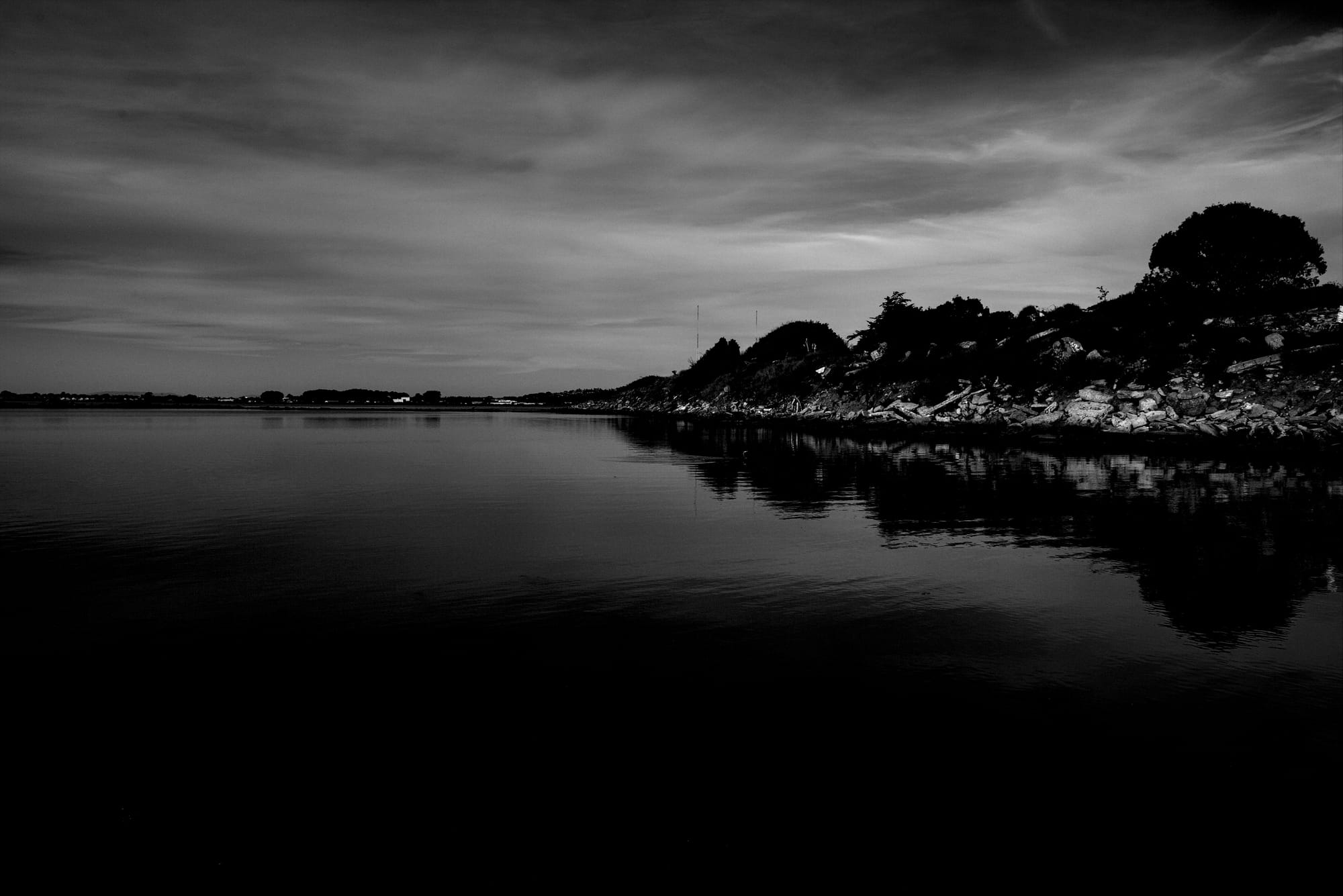
After a week, we got him moved down to Laguna Beach. He was a real estate agent and got himself a place on the actual beach. I wasn't impressed. He handed me a hundred bucks. He said, "Don't spend it all in one place." I hit main street, walked into a skate shop, and bought a Powell-Peralta long board. I had three dollars left over. But now I was mobile. I skated from shop to shop asking where the party was. It was Friday night after all. I had been dry for almost a week, and it was wearing on me.
Someone finally had some info and gave me vague directions to a party, something like, "Up the hill at the end of the street, through the canyon, make a left at the third light and you'll hear it." I remembered the directions and left. I didn't realize how far it was or that it would be uphill all the way but I made it to the party by sundown.
I was downright giddy, I was going to have a drink at last. I followed the directions and they turned out to be legit, I heard music and laughter. I got up the stairs and walked through the door without hesitation but just before my other foot crossed the threshold, a big guy with a lifeguard shirt put his hand on my chest and said, "Hold on buddy, where do you think you're going?" I said, "Into the party, of course!" He said, "No, I don't think so. You're too young." I pleaded my case passionately, I told him how it took me over an hour to walk there uphill, through the canyon, to no avail. He wouldn't budge.
So I kicked a can, and walked sullenly back down the steps. I thought to myself, "Well, at least it's downhill." Got on my new skateboard and coasted down through the canyon back to the beach.
That bit was fun. I was a little disappointed and resigned to the fact that I was going to have to go back to my uncle's house. I was walking on the beach by the light of the moon and smoking a cigarette, probably a pack I stole from my father a week earlier. Suddenly I heard, "Hey man, can I bum one of those?"
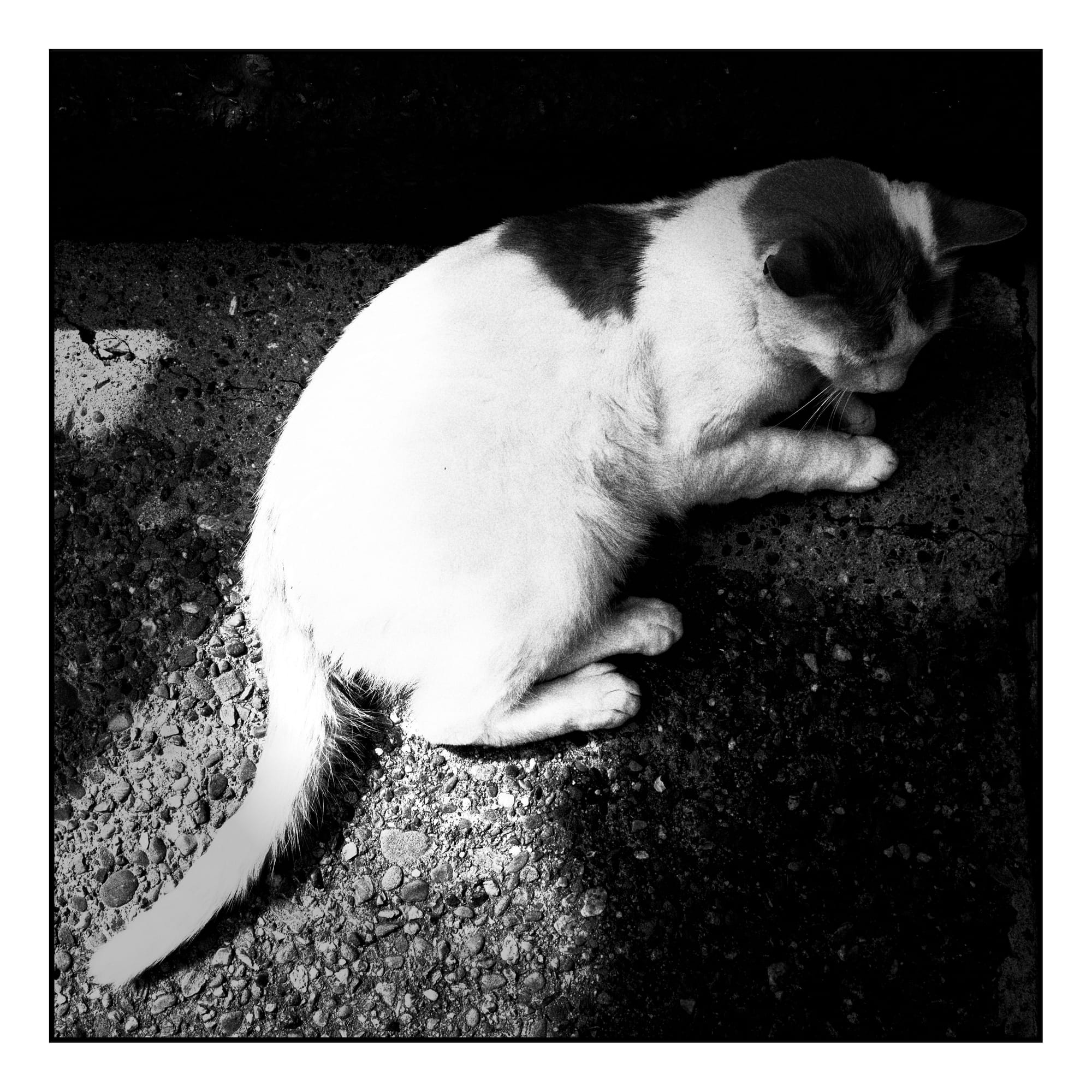
It was two older cats sitting on a driftwood log. I said, "Sure," and handed him a cigarette from my pack. I gave the other guy a cigarette too. He said "Wait a minute, here," and unzipped a gym bag and retrieved a plastic bottle of Jim Beam. I laughed and accepted it. My young alcoholic prayers had been answered! I took a seat on the log next to them and we chatted as we drank and smoked.
I learned that they were from Montana and they'd hitchhiked out to Laguna Beach. I didn't have many cigarettes left and we soon smoked the last of them. They asked if I had any money. I told them, "Three dollars." They said that was great and let's away to the liquor store. They told me to buy a pack, so I did. While the cashier turned around to make change they both reached up double-handed and withdrew as many packs as they could from the overhead cigarette pack dispenser and quickly pocketed them. I must've had a shocked look on my face when the cashier turned around with my change.
Anyway, that's just to say I guess these guys I was partying with were knocking over liquor stores everywhere they went. I didn't care who I was with as long as I had booze. It was a dangerous compromise. That was only the first store we went to. We went to another store but they could see I was pretty drunk. I was half-way through the bottle and I weighed a hundred-and-forty pounds wet at that time. I hadn't eaten since breakfast and it must've been getting on to 11 P.M. I don't remember finishing the bottle. The last thing I remember was sitting on a curb outside a store.
The next thing I knew I woke up to a sharp pain. I had been catheterized and my stomach had been pumped. I was in the emergency room at a hospital. The pain I felt was from ER staff removing the catheter.
My uncle Reggie was standing over me, shaking his head. He said to me, "You're lucky to be alive. If it wasn't for the last beach patrol, and the efforts of the emergency staff here, you'd be dead right now." He told me later that the last beach patrol had found me laying on the beach. I wasn't breathing and didn't have a pulse. They had a defibrillator on their ATV, and they used it on me, then performed CPR. Then called 911, an ambulance picked me up and took me to the hospital.
The first thing I said was something like "Dammit, that hurt." I might've had more words than that. I probably did, but they don't bear repeating. The next thing I said was, "Where's my skateboard?" I was ungrateful and selfish as I was still drunk. I learned later that I had a .49 blood-alcohol content, which is dangerously close to coma or death. I stayed drunk for three days, then came the hangover. Recovery was slow.
When I got back to the Bay Area, my parents put me into an in-patient drug treatment facility in Oakland called "Thunder Road." I was in and out of Alcoholics Anonymous for a long time after that. I dropped out of community college. I worked whatever job I could find. I was generally white-knuckling it, frustrated, lonely and bored with life without alcohol. I wasn't expecting to live past twenty, but there I was, and the joke was on me.
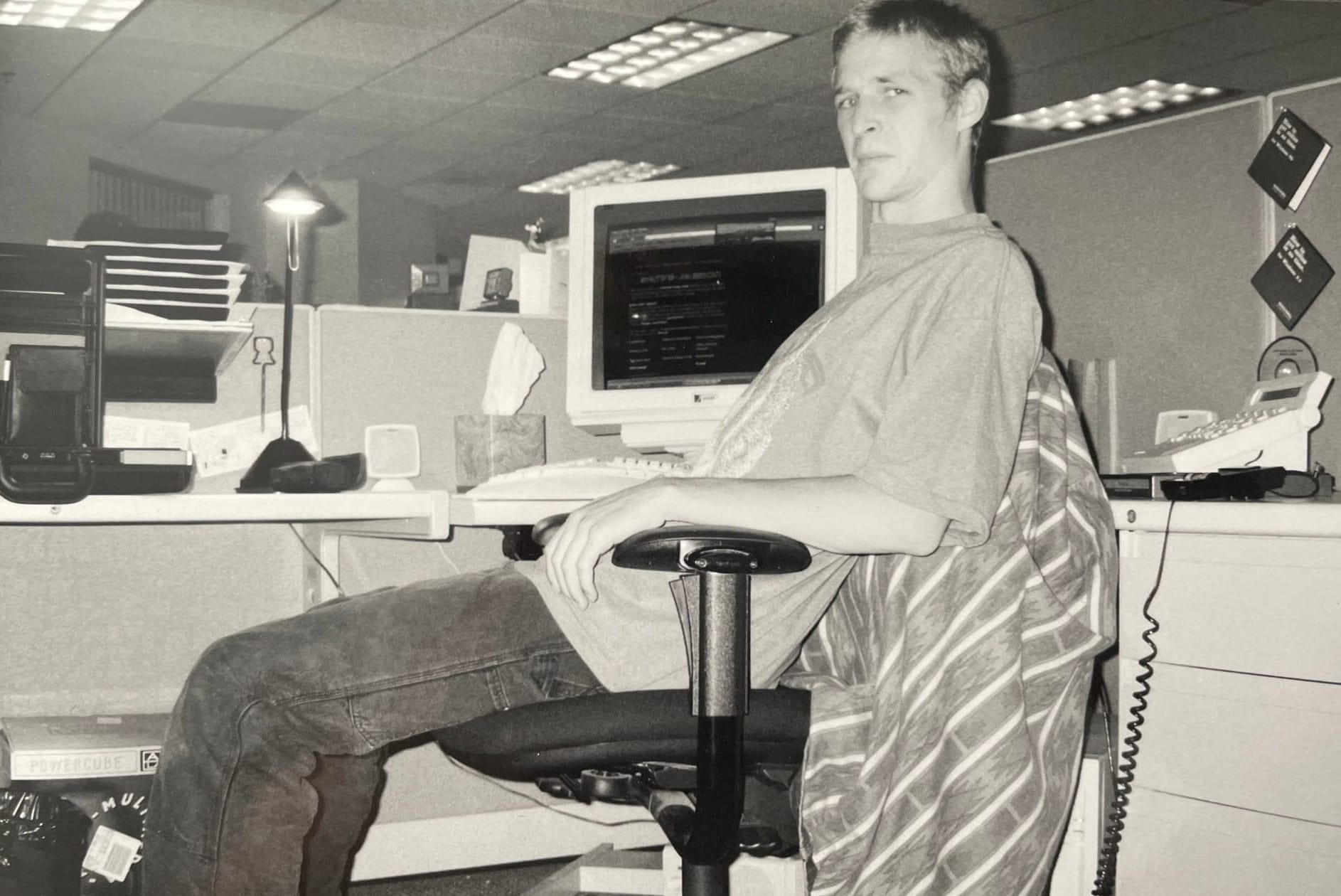
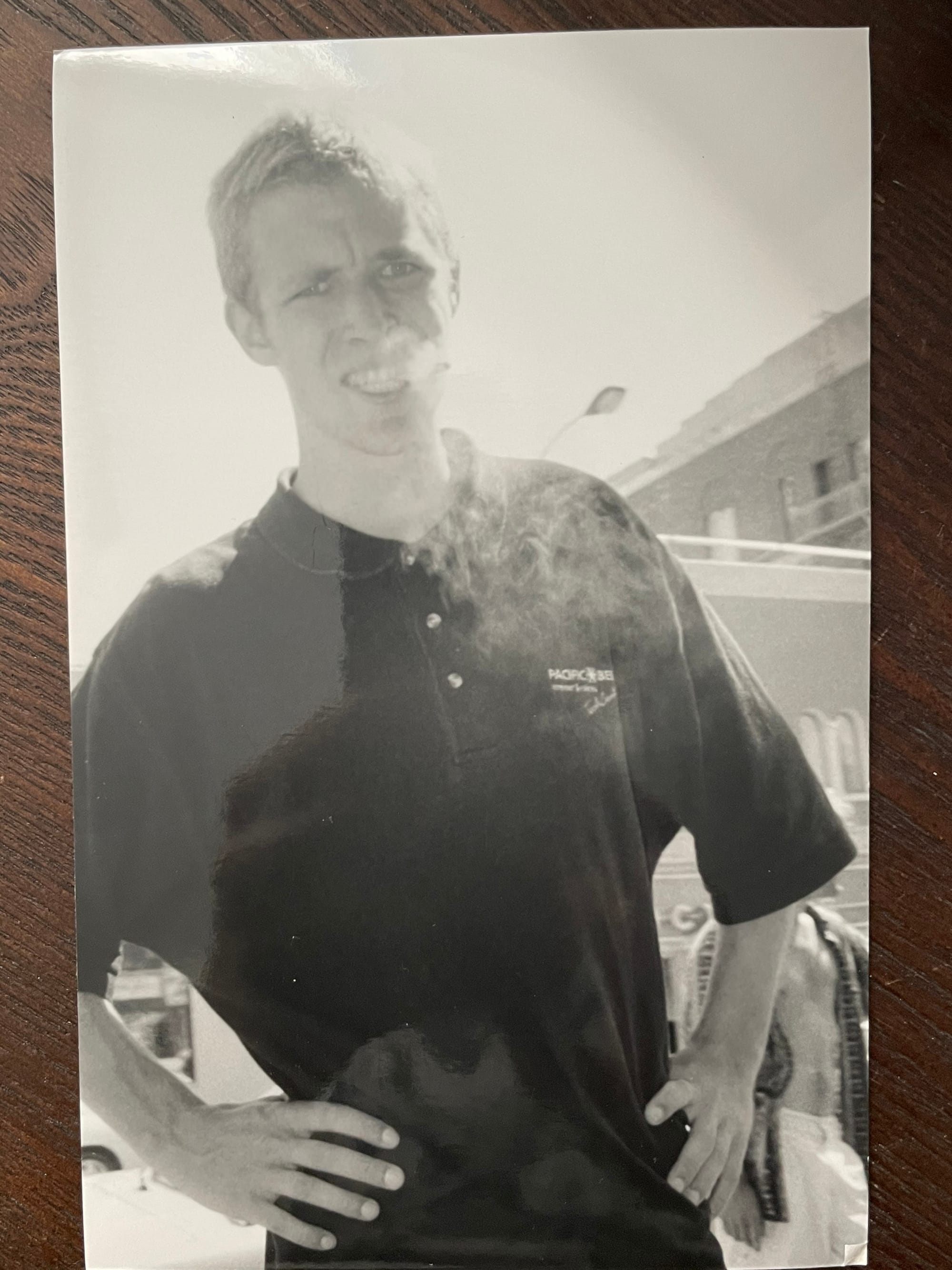
Isolate Records and the 1990s Bay Area electronic music scene
There’s a whole chapter of my musical journey that I almost forgot to add, which is when I was nineteen there was this guy, Wei. He lived in the ground-floor apartment of his parents' apartment complex. Wei Chang was an accomplished electronic music artist, not much older than me. He had many hardware synthesizers, a Roland Jupiter 6, SH-101, TR-808, TR-909, TR-303, a Prophet-5 and many others. He was a rich kid, clearly. I mean, he also had a bimmer. All bought by his parents most likely. I didn't care, it was still the epitome of cool to me. To continue he had a Mackie mixer and a pair of KRK monitors that he always left cranked, with a little hot-signal distortion from the mixer. Sometimes he’d let me play the synths, punch in a sequence or manipulate the filter cut-off or resonance. I didn’t know what I was doing, but it was great fun.
He created music that was so grating, it was even more grating than the music at the punk club. It would make anyone's ears bleed. I was sure that it would clear the dance floor. I kind of appreciated that. Like, fuck what other people want to hear, just make music that Freddy Krueger would use to punish people in their nightmares.
He played a few shows in San Francisco and I was his roadie. I got a taste of live sound, and I thought I was pretty tough from my construction jobs but lugging those PAs up six flights of stairs was no joke. Backbreaking work, and we were usually loading out at sunrise. We were frequent patrons at Denny's.
I met Wei just before the independent electronic music scene exploded in the Bay Area. For a while it was just me and Wei. Before he became popular, we would talk for hours about music. His favorite act at the time was an experimental electronic duo from Manchester called Autechre. Though much of it was over my head at the time, he would talk to me about MIDI, sequencing, different cables, audio formats, performance techniques, and much more.
Then he began having people over who monopolized his attention. Pretty soon he opened the record shop, and a group of people began hanging around who I didn’t particularly care for. They all seemed like brown-nosers to me. He played more shows, and brought more people into his entourage. I didn't care for the scene. He didn't have time anymore for our friendship, and I felt taken for granted. We parted ways on a sour note.
Other-world
In 2000, I found myself living in a small artist collective in a warehouse in West Oakland. The second warehouse that I had lived in. It was on Myrtle and West Grand an old Greyhound bus service warehouse, which had been disused for many years. I was there to design and build lofts. Which I did.
Next-door to us was a large DJ collective who would occasionally throw big parties. The electronic music scene was white hot. So was the drug culture. I wasn't into drugs. Powders, pills, needles, anything in a glass pipe generally disgusted me, as did the people that took them. I could see the wreckage they left behind them. I was not good at self-reflection at the time, but I could sure point out other people's faults.
I wasn't impressed overall. Too many egos, too many drugs and drug-users. Too many sweaty bodies in an enclosed space. It was not my scene and I was trying my best to stay sober at the time. However, I did take note of some of the sounds and techniques used to create them.
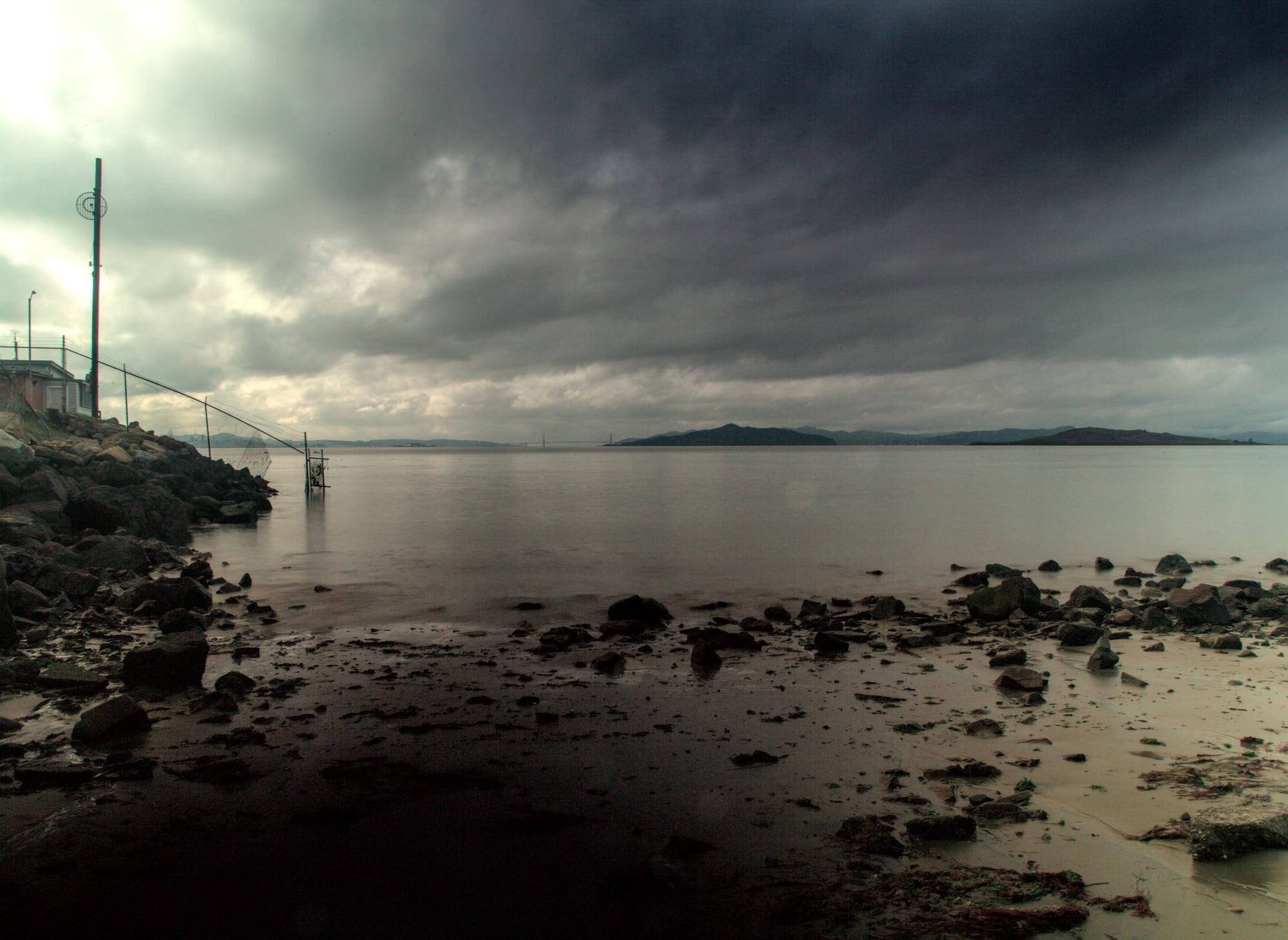
The Pub
In 2006 I was twenty-eight years old. Much to his dismay, I had followed my father's footsteps somewhat. Construction was his third choice. I working various construction jobs for cash under-the-table. Friday was payday. That fateful day, I had some cash in my pocket and I decided to stop into a music store in Berkeley for reasons unknown, I think it was "The Starving Musician." I was looking at the cheapest instrument I could find that could play a melody, it was a harmonica. A Hohner "Special 20." I bought two of them on a whim in the keys of C and G, and went on my way.
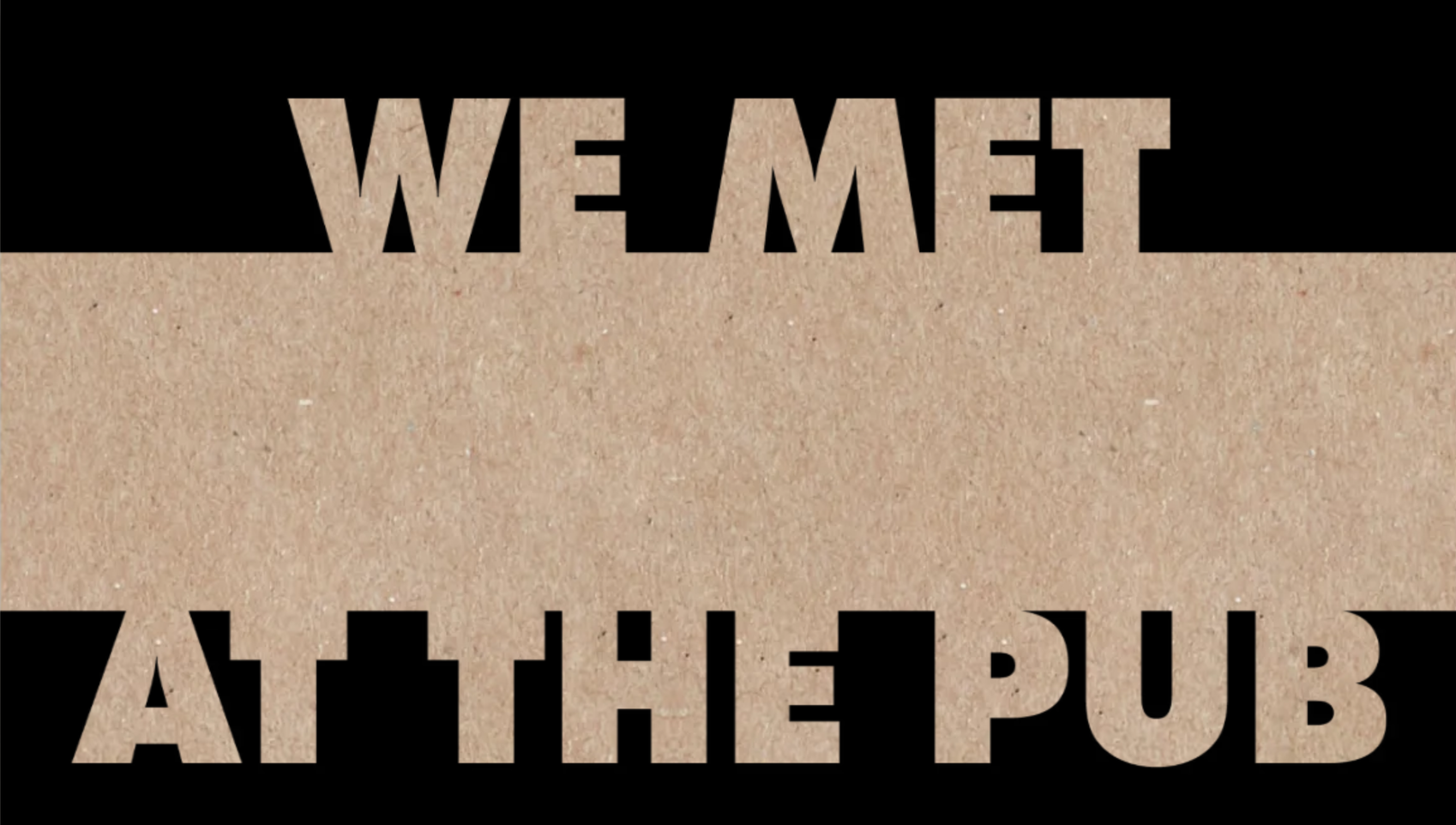
The girl I was dating worked at this place called Schmidt's Tobacco & Trading in Albany, an Irish-style pub. Because it was a tobacconist, it was one of a few places left in the Bay Area that you could smoke a cigarette while simultaneously having a beer.
It even had an indoor smoking area. A loud, smoky island of debauchery in an otherwise quiet, uptight bedroom community! A few beers and conversations later and I was hooked.
It was a little awkward for a while because me and the bartender broke up, but I became a regular patron after a couple of weeks anyway. Some patrons would argue that you're not a regular unless you've been around for ten years or more, ha! I was young and a couple weeks still felt like a long time. Anyway, I made friends quickly. Some people my age were hosting a party a few blocks away and invited me.
The main event for me was still alcohol, but there were also percussion instruments, and acoustic guitars. This one dude started playing blues riffs, and I thought it was the perfect time to bust out my harmonicas. I didn't know what I was doing, I just blew the hell out of that thing for a few minutes, bent some notes and everyone stood up and clapped afterward. They hugged me and high-fived me. It felt great, and apparently sounded great. It planted a seed.
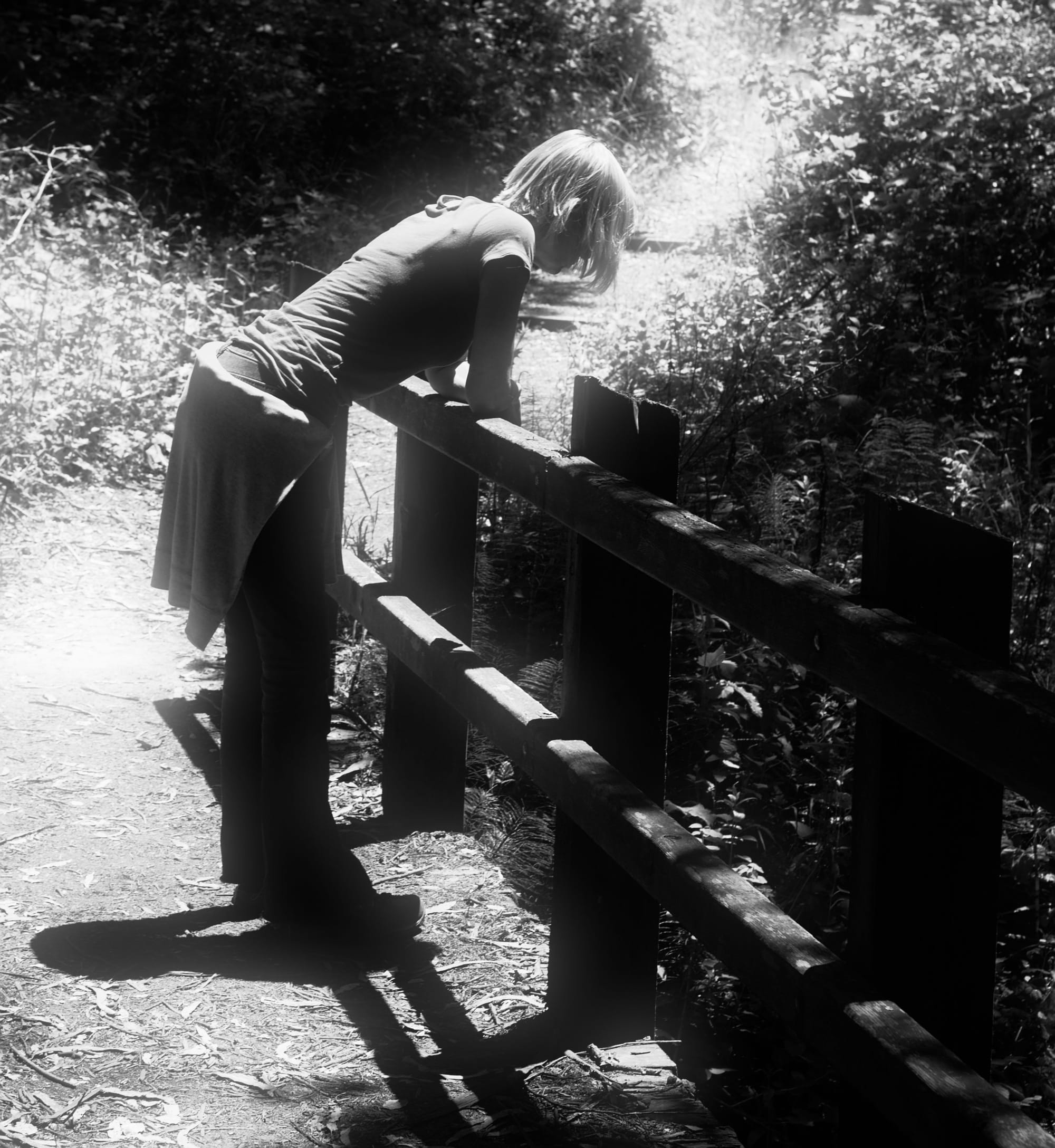
Over the next few months I bought a few more harmonicas, and we formed a little blues band. I forget what we called ourselves. But the members were Tommy, Noah, and me. It was a really informal thing. We'd play at parties. I'd often be so drunk I didn't remember playing, but something besides alcohol was beginning to infect my brain. It was a time of change.
Our little blues band was short-lived. And it would be some years before I picked up music again.
The Incidentals
In the 2010s there was a touring acoustic band called The Incidentals. The members met each other at the Pub. The members included: Jen, Dave, Thomas, and Trevor. Thomas is a guitar and flute builder, versed in Irish folk music. Dave was a classically-trained, avant-garde composer who played the saxophone, bass and keys. Jen was a vocalist with a velvet voice, and guitar-picker. Trevor was a capoeira instructor and rhythm-guitar player. They played covers and some originals. I mention them because that's around the time Jenny and I met, and they were friends-in-common. Also, Jen was a regular at Panama, and she later formed the all-female group, Sagebrush Sally.
The Panamanics
In 2015 I found myself in a long-term relationship with a stable living situation. I bought a guitar and me and my partner started learning. I started writing songs. Many of them were terrible, but there were some gems. I took my guitar everywhere, and I had a little songbook of my original songs that fit in the neck of the guitar case.
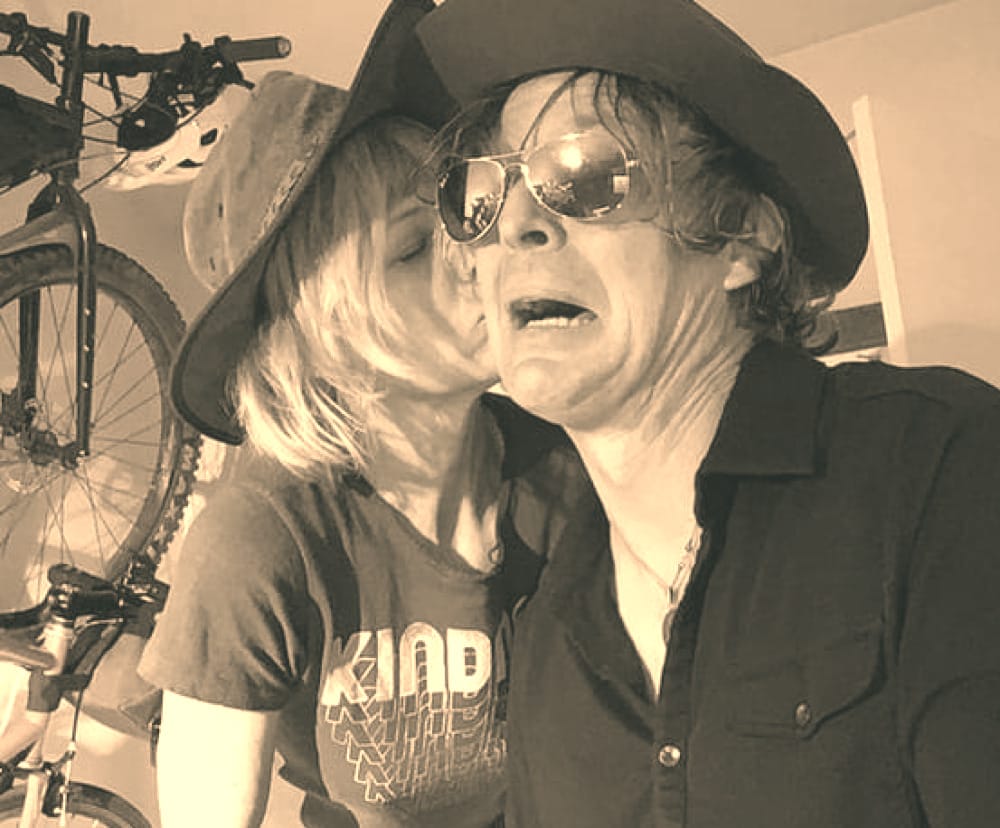
We started hosting music nights with a few friends every week. We would cover a variety of songs. The regulars included Jen, Nakale, Adaiya, Chris, and Devin. We called ourselves the Panamanics, after the street we live on, Panama.
Jenny joined an all female cover band called Sagebrush Sally. It was her Nakale, Adaiya and Jen. They played open mics at the Ivy room and other places. They covered folk, pop and Americana.
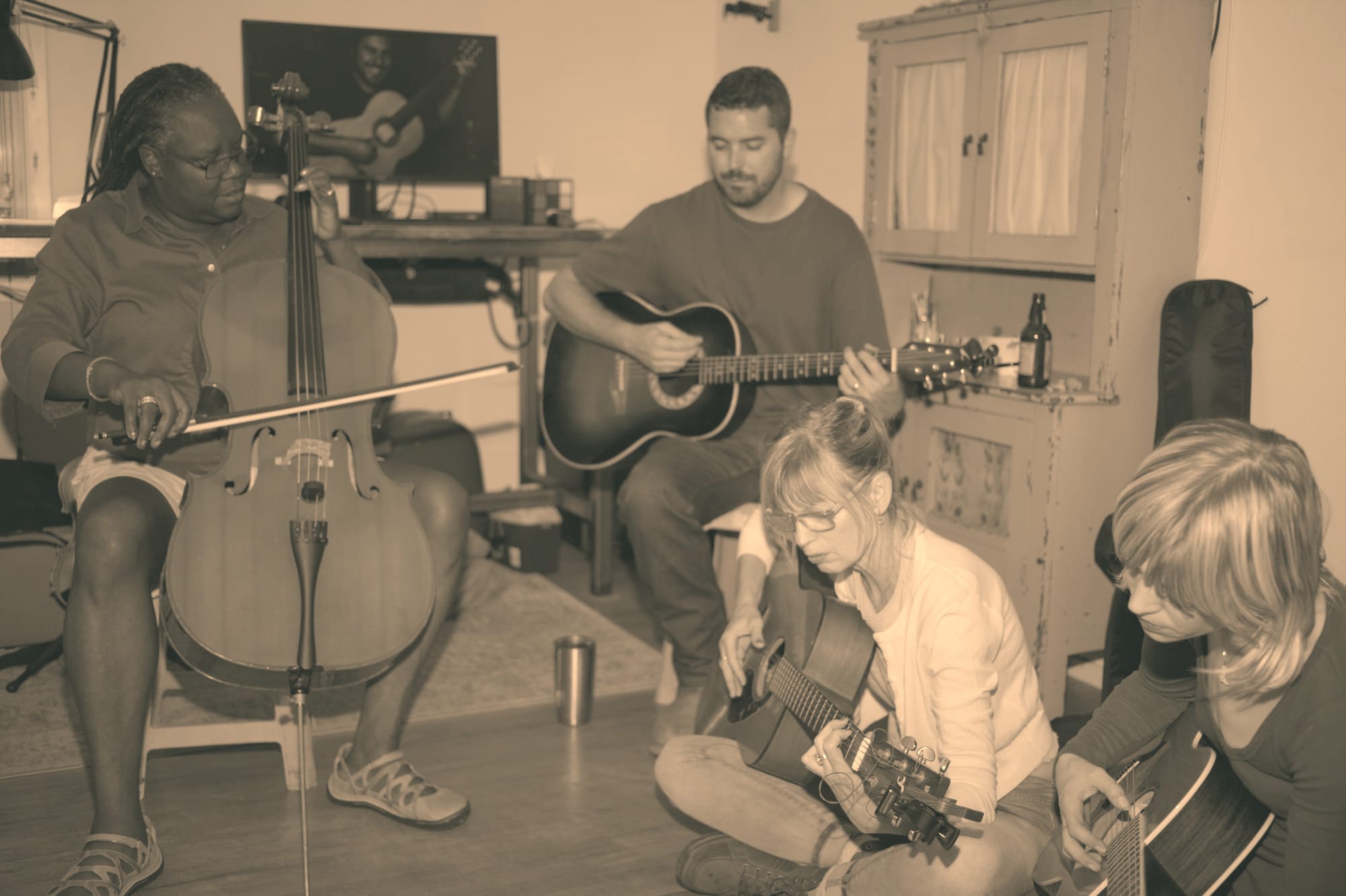
I felt thwarted as time went on because we were just doing covers not originals. And badly at that. Not because of lack of skill, but lack of organization. I knew we could do better.
I made printouts of the songs that we would cover and highlighted everybody’s part in each song in hopes that we could have a dynamic version that was recording worthy. It was ignored and I was told that no real musician needs a crib-sheet. So everybody played all the way through every song. It was fun to play, but the recordings lacked professionalism in my opinion.
Our cover band broke up during the pandemic and everybody moved away. They were mostly from other places. When the chips fell, they moved back to where they were from.
Don't Fear The Reaper. Getting Into Multi-tracks and Digital Audio Workstations
Around that time, I began recording my songs with a multi-track recording program you may have heard of, called GarageBand. I was using my stepdaughter‘s MacBook Air, purchased for her college studies, but she had dropped out and wasn’t using it.
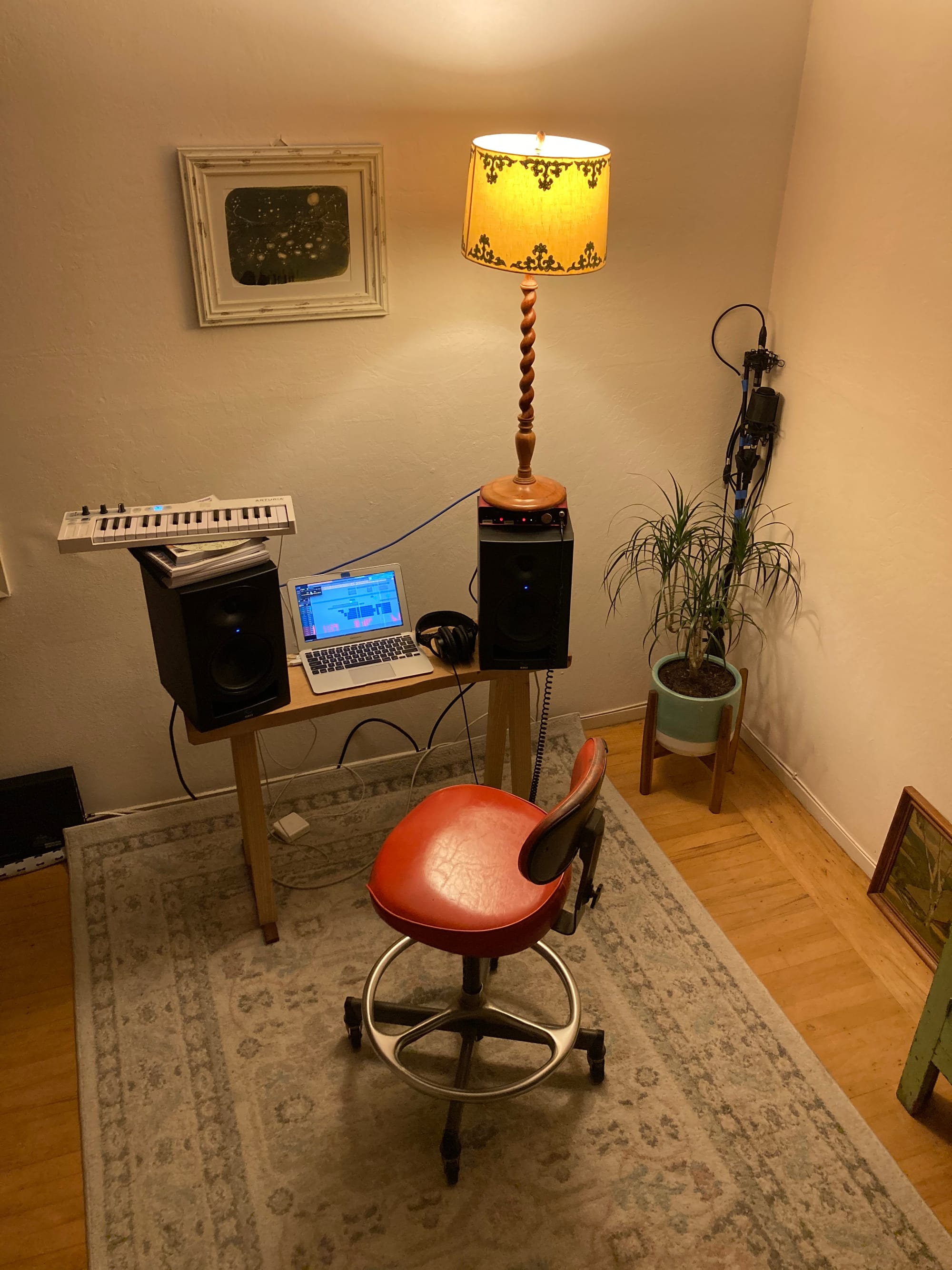
At the beginning of the pandemic, I bought a microphone and an interface. I believe the microphone was an Audio-Technica AT-2020 and the interface was a Focusrite Scarlet 2i4. I also bought a little MIDI controller keyboard, an Arturia Keystep 32. The controller was also a step sequencer and arpeggiator. It could loop up to four bars with quarter notes.
I read up on the Reddit forums about DAWs. There was Logic, the traditional upgrade path from Garageband, Fruity Loops Studio, Abelton Live, ProTools, but they were all over a hundred dollars to get started. Then I read about this DAW that seemed to have a cult-following, Reaper. I read that the price was free with no nags or crippleware for sixty days, but the learning-curve was steep. Indeed it was.
I've been using it for five years now, and I feel like I've scratched just below the surface of what it is capable of. Reaper has a smaller footprint and low memory usage. That was important to me at the time because I had only four gigabytes of memory to work with.
I downloaded Reaper immediately and installed it. I opened it up for the first time, and I was confronted with a new project with a blank screen. It had no sounds of its own no samples, no synthesizer. I looked around some more online and found a free-synth. I believe it was Surge XT, which Roger Linn has contributed to (creator of the famed LinnDrum machine, which you may not know of but you have definitely heard before).
I downloaded Surge XT and installed it. I inserted it on a new track put the track into record and played some notes on my MIDI controller, but there is no sound. I simply had to select the input. I did that, played some notes on the MIDI controller again and suddenly there was sound!
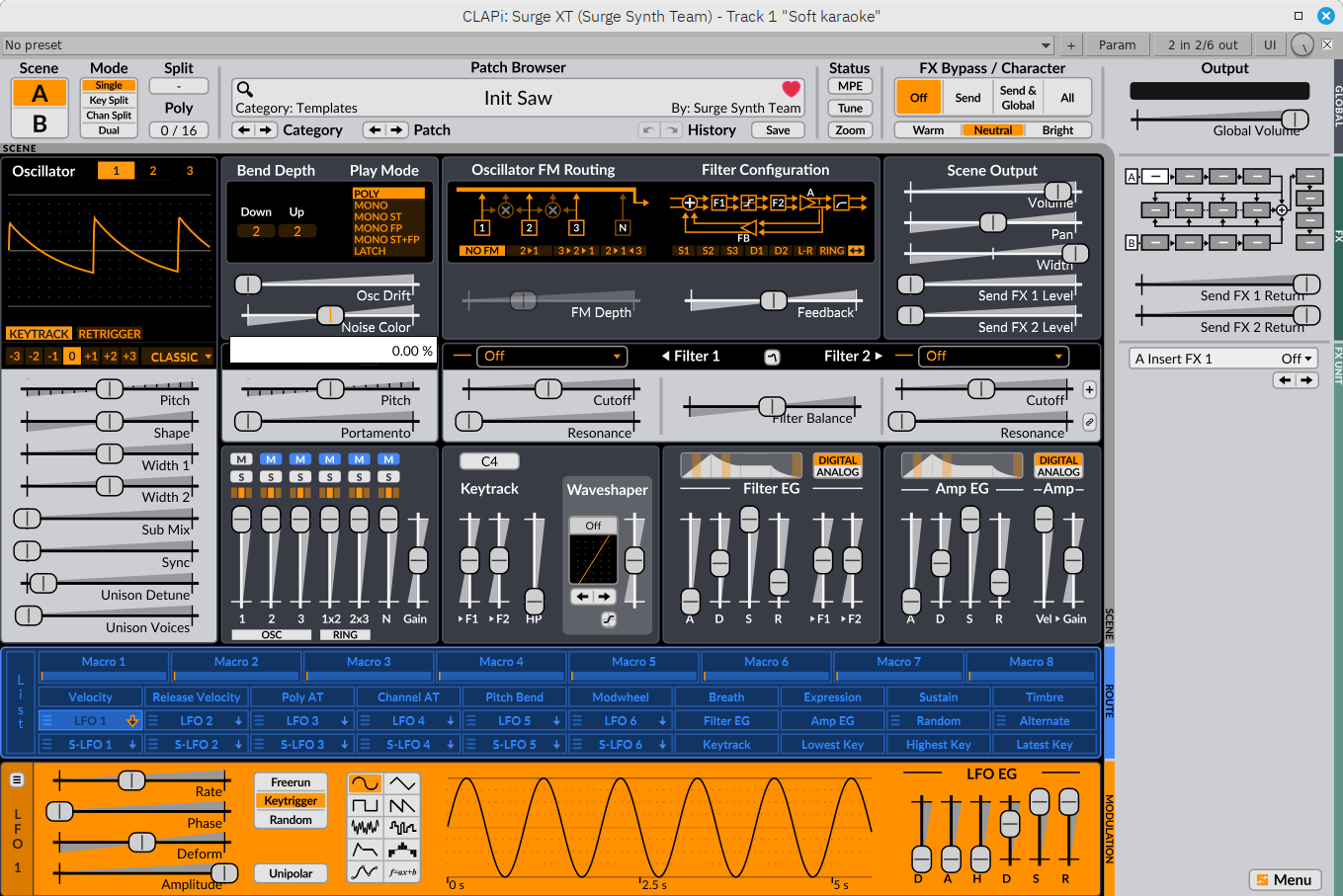
Let me talk briefly about Reaper. What can I say about Reaper that has not already been said? It has a cult-following. Of the major DAWs, it has probably the smallest market-share in the DAW market.
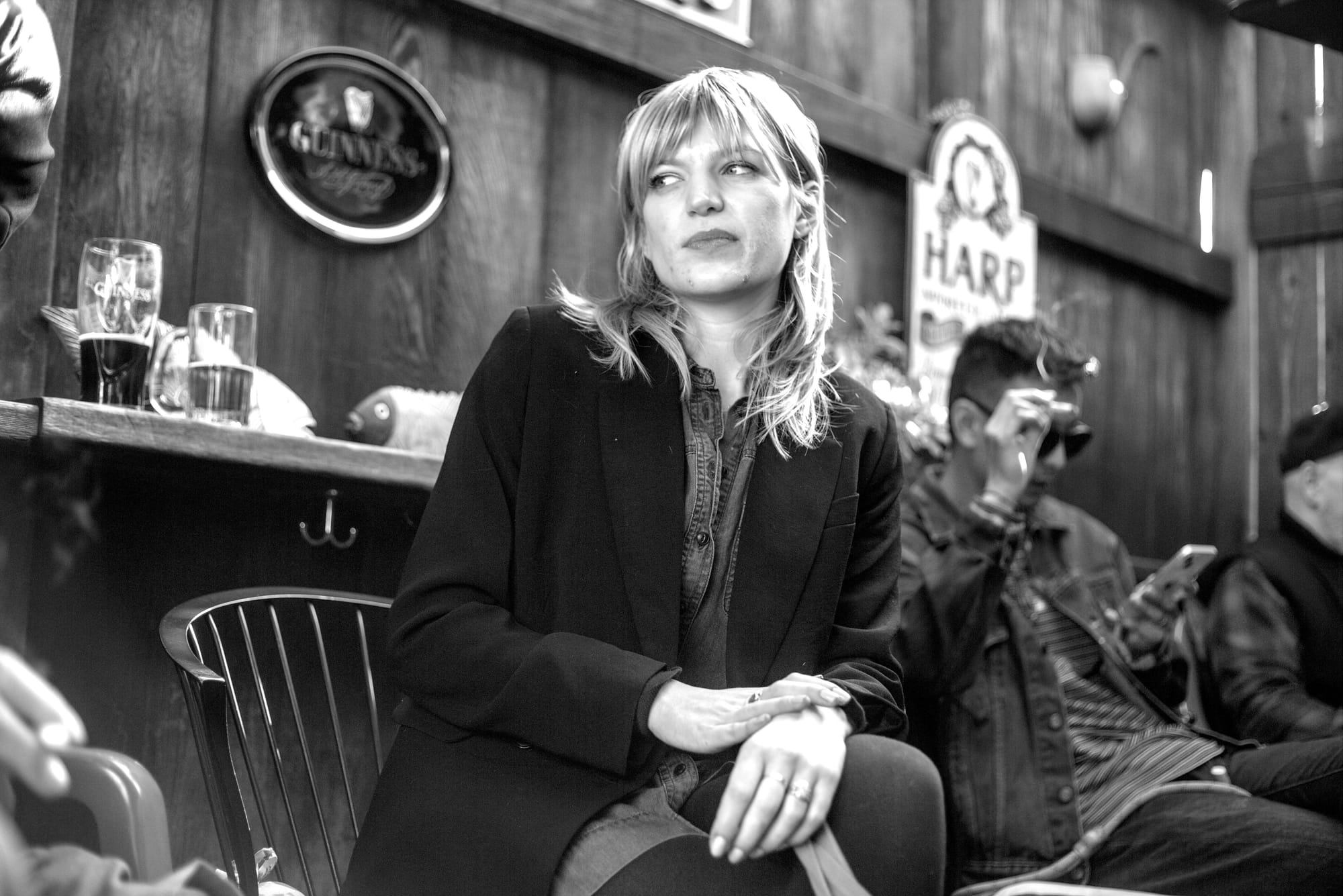
Rather than go through an exhaustive list of capabilities and features, I will just tell you point-blank my experience using it. Reaper is extremely flexible and powerful. I've noticed that the more I use it, the less it's in my way. I am able to focus on the task at hand, and not get bogged down because it works in a predictable manner. There aren't too many features buried beneath five or more layers of menus, and for those that are you can simply search for the command to do anything with a question-mark. It's all listed. Beyond that you can assign hot-keys or mouse clicks.
Common operations are trivial in Reaper. Recording anything and overdubbing anything is trivial. Takes and comping are trivial. Matching the grid to a performance, trivial. Routing, assigning channels, bussing, parallelization, side-chaining, all trivial. It's not obvious how to do these things from the start but for anything you want to do, there is a video to show you how.
Reaper was like a blank canvas, which pushed me to dig deeper. I found free software, software-based synthesizers, audio samples, step-by-step tutorial videos. It pushed me to learn music production. It did not hold my hand. But it was predictable in its operation and got out of my way.
A large number of those videos were by a You-Tuber by the name of Kenny Gioia. I was thrown at first by his east-coast accent. His calm, no-frills approach to teaching Reaper I found educational and enjoyable.
There are literally thousands of videos on how to use Reaper, and there is no excuse to sit there and stare blankly in frustration at a new project.
Again, it requires some sleuthing to figure out, and maybe a ten minute video. Once you watch a video on how to do something, and then you do it, it's difficult to forget. I think some aspiring producers want to look like they know what they're doing from the start, without doing any work. They want a total package handed to them on a silver platter. These kinds of producers inevitably give up on Reaper.
That brings me to the drawbacks. The one big drawback to Reaper is that it comes with no stock sounds, no samples, and just a few rudimentary synthesis engines, (the download size is still under twenty megabytes!). Though I don't really consider that a drawback, it just requires a little footwork to get up and running. There are many free sample libraries and soft-synths available to download on the internet.
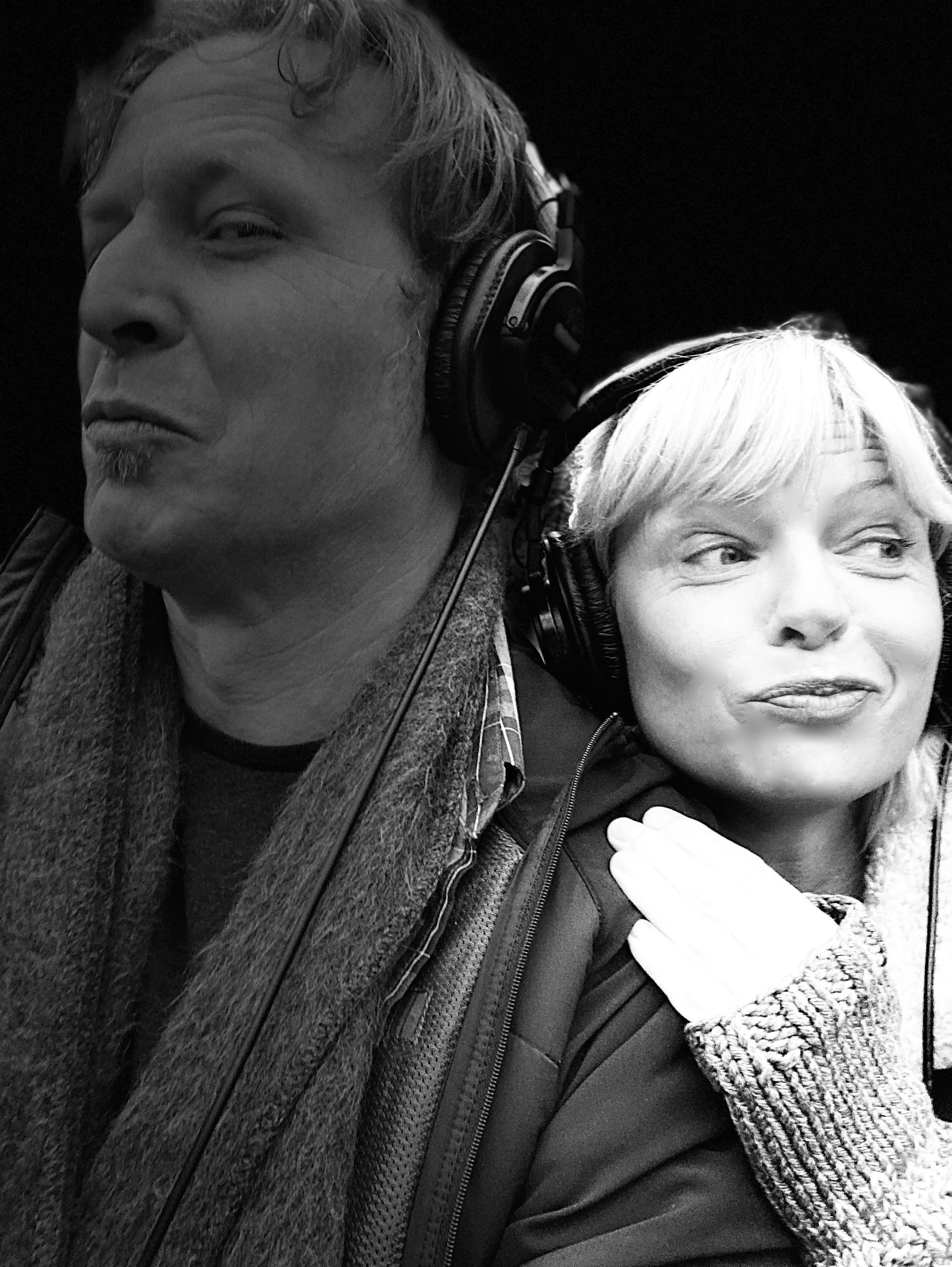
I think it's actually a benefit because everyone's search for samples and synths will take them in different directions. For this reason, no two users of Reaper will sound exactly the same.
Whereas with Logic or Abelton, you get a bunch of sounds that some users will never move beyond, which are popular in various genres for various reasons.
Reaper is the cheapest major DAW. Sixty-dollars at the time of this writing gets you two major revisions, that's roughly two years of use. I used it for four years with the nag-screen before I bought it. It has propelled me into becoming serious about music production and recording. I don't know why I waited so long to purchase, I guess I wasn't sure if it was something I would use often. I've been using it daily.
Anyway, that's my plug for Reaper. Back to the story.
I downloaded many free synthesizer and audio plug-ins. But I also went on a search for downloadable sample libraries, in particular, common drum machines. I wanted samples for those. It seemed like anything I searched for led me to a paywall of some type either a subscription or one time fee. I didn’t want to pay. I thought there had to be some free sample libraries out there. I knew about a site called the Internet Archive. I searched again for sample libraries but this time I restricted my search to the Internet Archive. I hit pay-dirt. I found a large collection with about thirty drum machines represented.
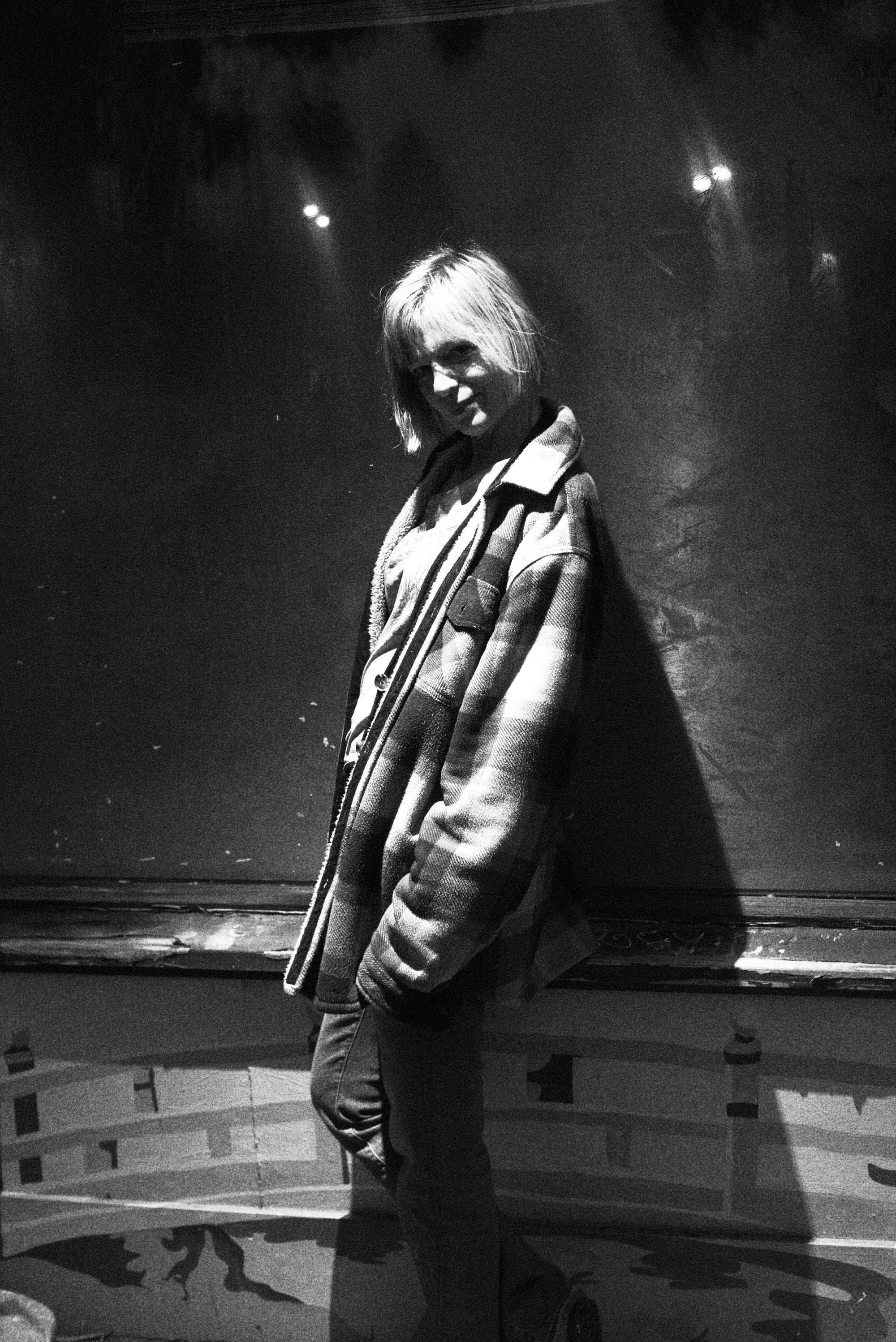
I started making electronic music in earnest. Not techno, and not hip-hop, just doing my own thing, experimenting. I had a great time. It was enjoyable to me. More enjoyable than playing the guitar.
I had no pretensions of becoming a DJ or creating music for DJs. I am not a festival goer. I hate crowds and large groups of people generally. No, my music is just for me.
If I had to concisely, describe the genre that I eventually fell into I would say it is downtempo-ambient. I like soundscapes backed up with an interesting rhythm.
Computers And Todd Rundgren
I should talk about my experience with computers, because it is significant and has shaped the way I create and consume music. I have always been interested in computers. Starting in elementary school. There were these computers with the "PET" logo and they used audio cassette tapes for data storage. They were quite primitive. When I was in middle-school, there was an Apple II. On that machine I remember there was a program called "Hypercard" which you could create link-able text with. It was a new idea and the precursor to hyper-text links for the World Wide Web. I think that was 1989. In high school in the early-1990s we had IBM XT‘s which were quite old at the time.
We had our first computer at home. It ran on DOS and Windows 3.1. I used to dial-in to a local bulletin-board system or "BBS" as they were called. I was a regular caller at The Realm Of The Screaming Electron, "&TOTSE." Back beyond the statute of limitations, I would download text-files on hacking, phreaking (phone hacking), and other stuff that I won't go into here.
In 1992, when I was fifteen, my father took me to the Exploratorium. I forget the name of the temporary exhibit, but I remember meeting Todd Rundgren there. He was talking to everybody about digital music files, and meta-tagging them for different genres and moods. Pretty advanced stuff at the time, I was blown away by what I understood of that talk. Then he came over unprompted and shook my hand. He was a really nice guy, he spoke to me as an equal, a fifteen year-old kid! Alone, for fifteen-minutes straight. His excitement and fervor for new technology was contagious. I already had the bug, but now I was on fire.
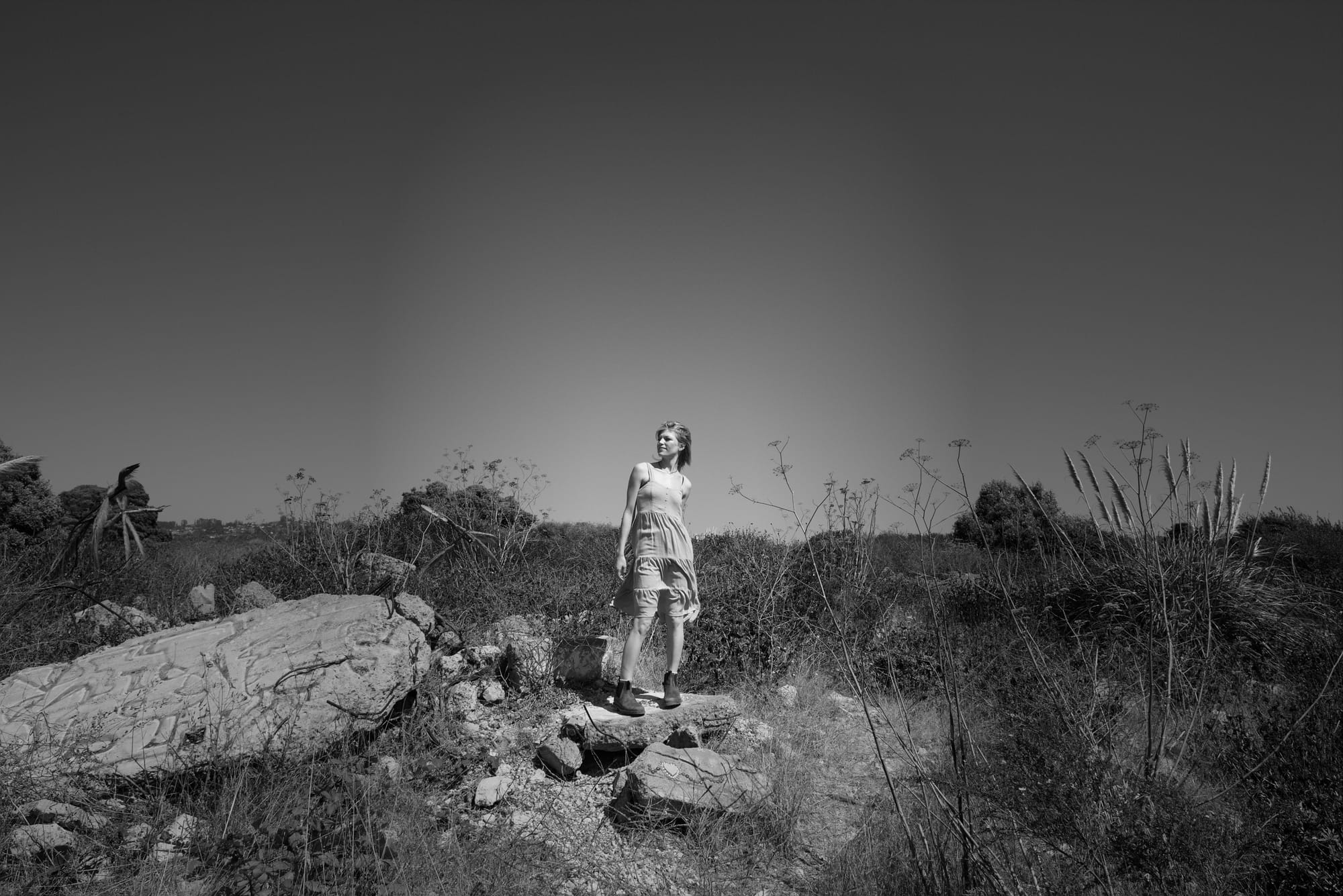
The computers at school were brutally outdated. But I stopped by the local community college, Vista Community College in Berkeley to see if I could get into their computer programming course. I eventually did, and I took a course in the C programming language. I found parts of it enjoyable, but it was also frustrating, in particular I never could quite wrap my mind around the concept of pointers. The teacher was terse. Over the years, I have also tried my hand at Perl, Python, JavaScript and Ruby.
After high school I had my own computer on which I was running an early version of Slackware Linux (an operating system) from Walnut Creek CD-ROM. What a mess. I had to reinstall it so many times. But I didn't give up.
Later on I had a computer repair business, desktop support business, web development and graphic design business at various points in my professional life.
This is an aside, but just to point out that I have always been well-versed in computers, and I love learning new programs and figuring out how they work. And although I am not a good programmer, I can figure out most things computer-related. I am fairly savvy.
Music Now
I am learning how to play my instrument (keys). I am not doing anything ground-breaking with music. Probably very few people will hear anything I create. I'm never going to "make it" in the music industry. My compositions are sophomoric for now. I know all that, and it's fine. All I want to do is keep playing and creating music.
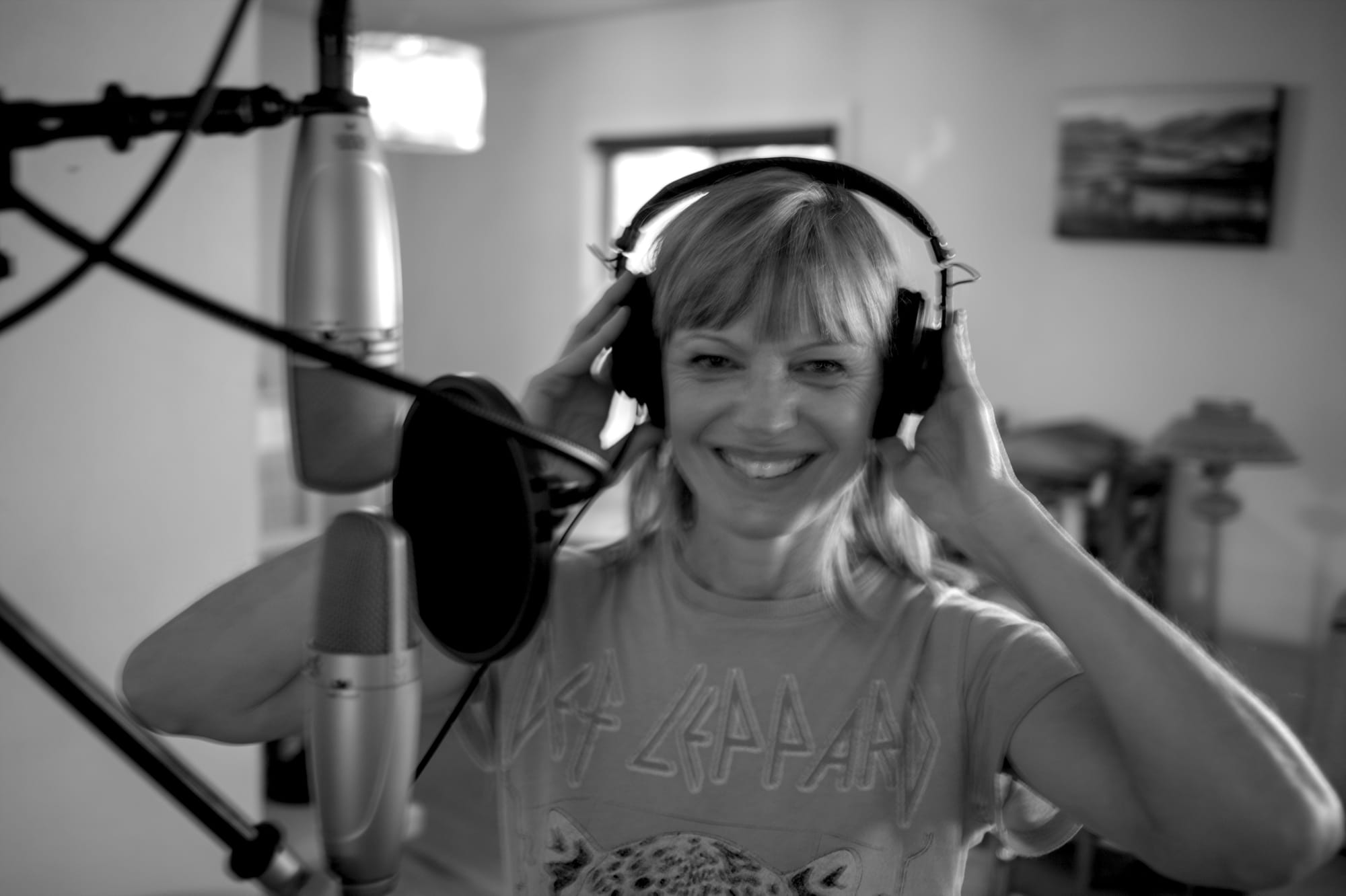
Acoustic Covers
This year I have found a small group my age to jam with. Rob, a bassist and computer programmer for Meyer Sound, Julie, a great vocalist and guitar player, and Stefan a trained jazz drummer. We are pretty informal and eclectic in the songs that we cover. We don't have any originals yet. I play the harmonica, and sometimes play a little keyboard called a Yamaha Reface CP. I play the keys and harmonica by ear. We meet up every few weeks and usually record our sessions. We don't have a name yet and we don't play out yet, and we might not. That's fine with me. I love to play music with other people who aren't catatonically high and know when and how to come in. Musicians who don't step on each other. Love it.
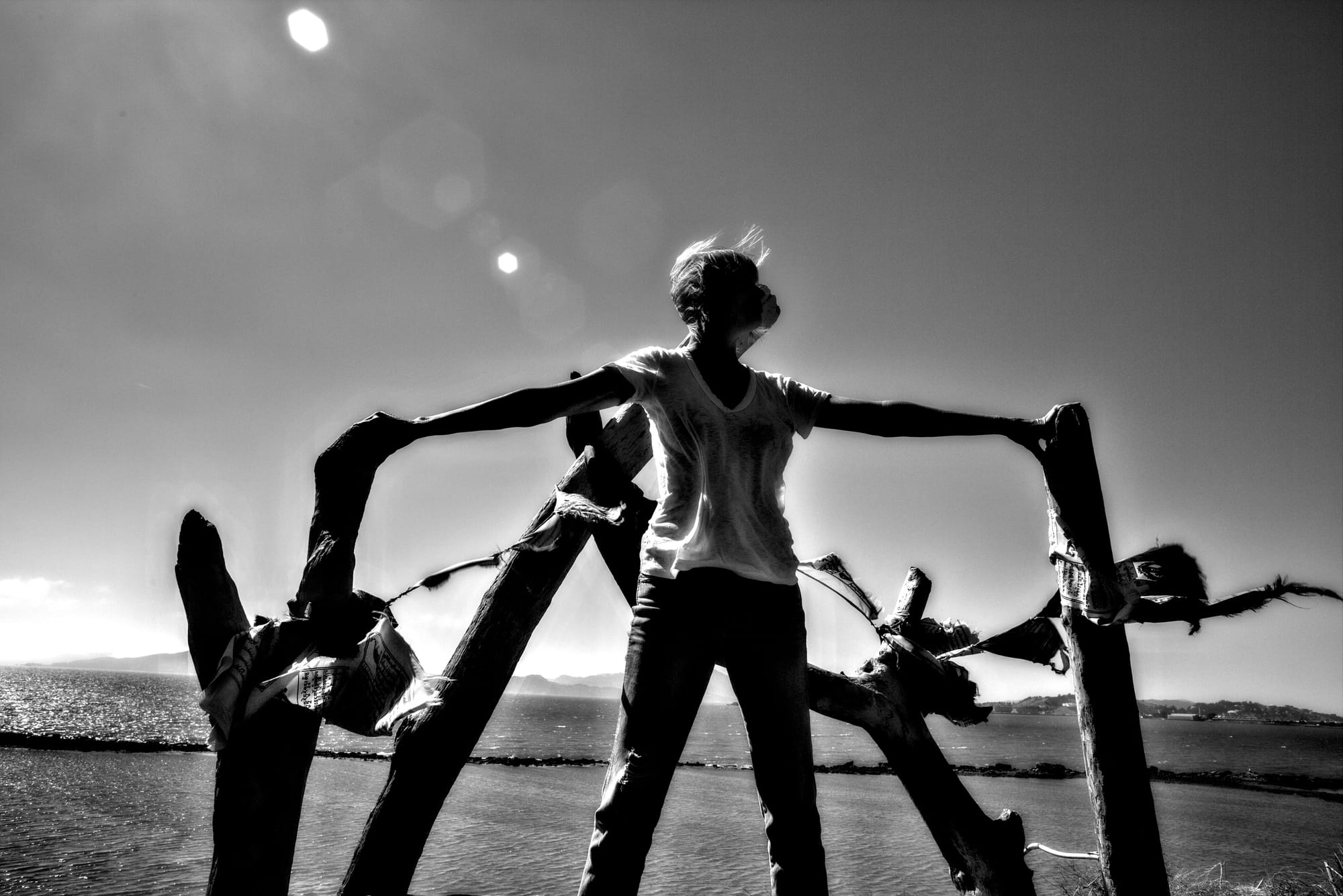
Original Compositions
I don’t have a large body of work. Perhaps a few dozen completed songs. But I have hundreds of ideas cluttering up my project directory. Some of them get shelved or deleted. Some of them I combine into other projects, others I work into complete songs. Not all of my completed songs I am proud of, and only some of those find their way into albums.
I don't always have words for what I do. I get into deep water and I get tunnel-vision. I just go for it. I used to use a custom template for Reaper that I developed over the years, but these days I start with a blank project.
I might start with synthesis, a field recording, a rhythm and a custom drum kit, a melody, a drone, some random keys sequenced or looped, a sample, the possibilities are limitless.
Sometimes I impose constraints on my new song like keeping to a certain key, song structure, time signature, tempo or sequencing one track with an odd number of steps. Sometimes I don't. Sometimes a song comes to me and I complete it within a day, sometimes they take months to complete. Sometimes I add live recorded acoustic or electric instruments, or a vocalist to the mix. More often my originals are electronic.
Creating an original track from scratch can be daunting. I am not always at my peak creativity. In fact, I frequently experience creative slumps. That's when I do other things music-related, like make digital covers for example.
Digital Covers
One of my favorite tracks by Stevie Wonder, ever since I was a kid has always been "I just called to say I love you." I think Stevie Wonder is a musical genius. As an example of a digital cover, I recently worked up a cover of the instrumentals on that song from a MIDI file that I downloaded from the Internet Archive. Probably composed and produced in the 1990s. That was a big thing back then. MIDI was brand new and people from around the world were composing digital versions of popular songs. It was a novel idea at the time, pushing digital music forward. Now it is somewhat antiquated. Not many people that I've run into know what MIDI files are, let alone see the possibilities waiting to be unlocked in them.
If I wanted to hear any sound from that file at a bare-minimum I would need to: import the file into Reaper, explode the file into separate tracks, place the tracks into a container track (called a buss) and throw a General MIDI (GM) plug-in on the buss. Then you would just hear a GM arrangement, which is kind of cheesy.
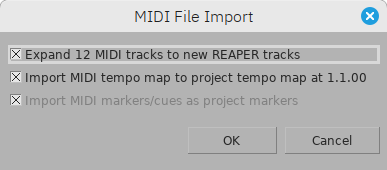
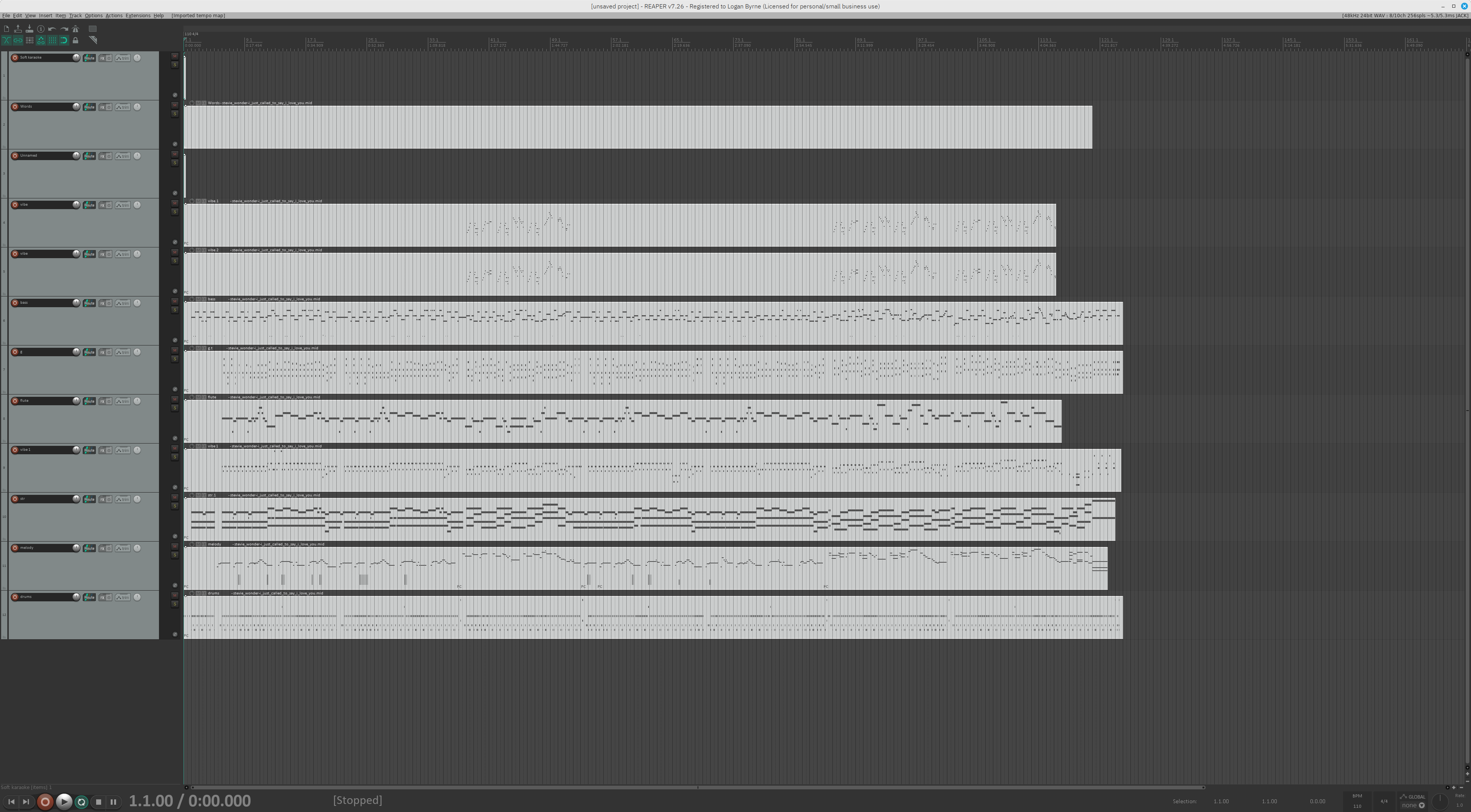
Sometimes the tracks are labeled with helpful things like "keys" or "guitar," sometimes they are not, and you have to figure that out. That's why GM plug-ins are useful. OS X and Windows both come with a GM plug-in built-in. For Reaper on Linux, I had to find and download one. I use X42's very capable GM plug-in which uses S. Christian Collins' GeneralUser GS which is a Roland GS and GM compatible SoundFont bank for composing and playing MIDI files. To my ears, it sounds better than what comes standard on OS X or Windows.
I use the GM plug-in to find and label tracks appropriately. The song is going to sound different anyway, but it is a useful starting point.
From there I use paid soft-synthesizer programs to get the sounds I want from each track. Each one of those could be the subject of a four-hundred page technical manual. I use presets to ball-park the sound. Then I design the sounds from the ground-up.
It usually takes me about ten to fifteen hours of synthesis, sample selection, tweaking, arranging, and mixing to get an acceptable sounding digital instrumental cover song. For Stevie Wonder's "I Just Called [...]," it took me forty hours.
For the most part I am not composing the music myself when I create digital covers using a MIDI file as a starting point. I mostly just do the sound design, mixing, editing, automation synthesis, sample selection, etc. I say mostly because I usually do add some notes in the piano roll here and there. I credit the creators of the MIDI files. When possible I give them composition credit, but sometimes there is no author credited in the MIDI file. The credit for the copyright holder is typically "Lyrics and Melody." The only credits I give myself in a digital cover worked up from a MIDI file are for arrangement and production. If I use samples that I recorded myself, or if I record a singer or musician, I might give myself an engineering credit.
Gratitude and Grumblings
Me interfacing with society is like a caged ape realizing the pointlessness of it's existence, beating its head against the bars of its cage for stimulation. Tip of the hat to Werner Herzog. Anyway, life kept interrupting me with things like alcoholism, ADHD, and day jobs.
One of the funny things about me is that I’m not a punk rock as I once thought I was. I’m not as edgy as some artists, and I’m not part of a music scene per se. Maybe I'm just getting older. I am a bit of a hermit in my personal life and although I do host a monthly music get-together, we don’t always jam. Sometimes we just sit in the backyard and talk about music or other things photography, work, and the goings on in our private lives. Alcohol is no longer the main event, but it is present.
Playing music is one of my passions, as is digital music production, recording, audio engineering, portrait photography, typography, graphic design. It’s funny because one of my passions is not construction, but I did construction to survive for twenty-five years. I was passionate to follow my father‘s footsteps, but I was not passionate about construction. It’s not that I wasn’t good at it, I just never stuck around long enough to advance. I hated working for other people and having a boss. I would frequently get in trouble at work with my boss or my coworkers. Usually I would lose the job in three-to-six months. That's why I would try to spin-up small businesses, but I could never make that work either.
I have recorded several artists in my living-room studio: Local legend William "Bill" Macbeath, acoustic punk rock duo, Denny Blue, bassist Rob Orsini, baritone singer Giovanni Pasquini, extraordinary vocalists Jenny Brunswig (credited as: JM Brunswig) and Pascale Brunswig-Sanborn (credited as: PMB Sanborn).
I have recorded outside the studio as well. For example: gypsy-jazz quartet Barrio Mundial, bluegrass trio The East Bay Serenaders, and more. Probably my most important recording project right now is an on-going conversation with my father. I have about twelve hours of audio interviews with him. I know that's not musical. ..But it's important.
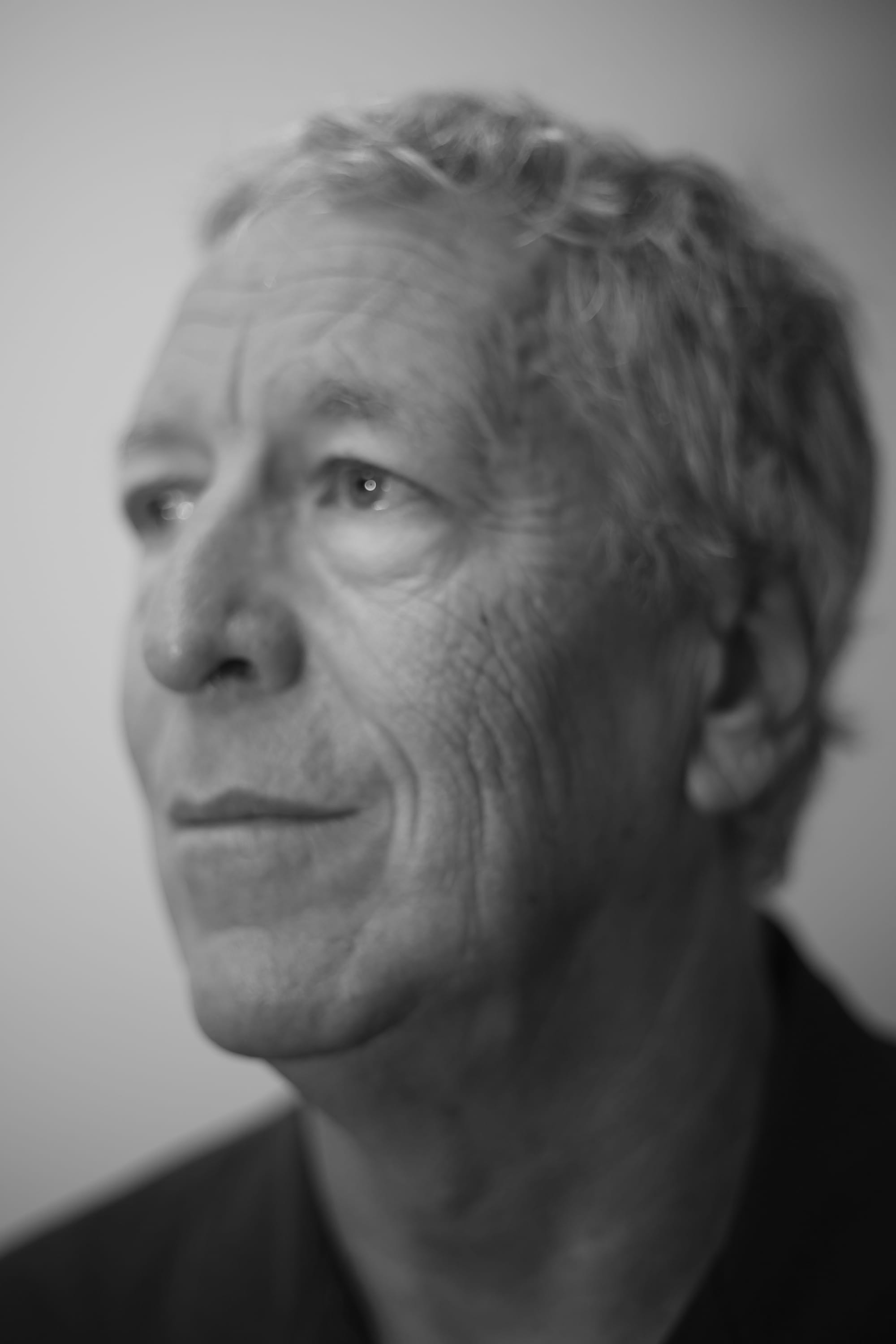
Anyway, all of this is to say that my interests are quite varied and even within the topic of music itself, I'm all over the place. I am grateful for all the experiences I've had and my diverse interests. At forty-eight years old I feel the excitement of someone who has just begun their musical journey. And on top of that I have the patience and wisdom of my older self to draw upon.
I do meet a lot of talented musicians. I have spoken to people who are classically-trained and many of them tell me if I had gone to a music college early on, odds are pretty good that I'd be burned out on music by now. No offense intended. If you are classically trained, or self-taught (and had the discipline to stick with it), I am awestruck by you. It simply wasn't my path.
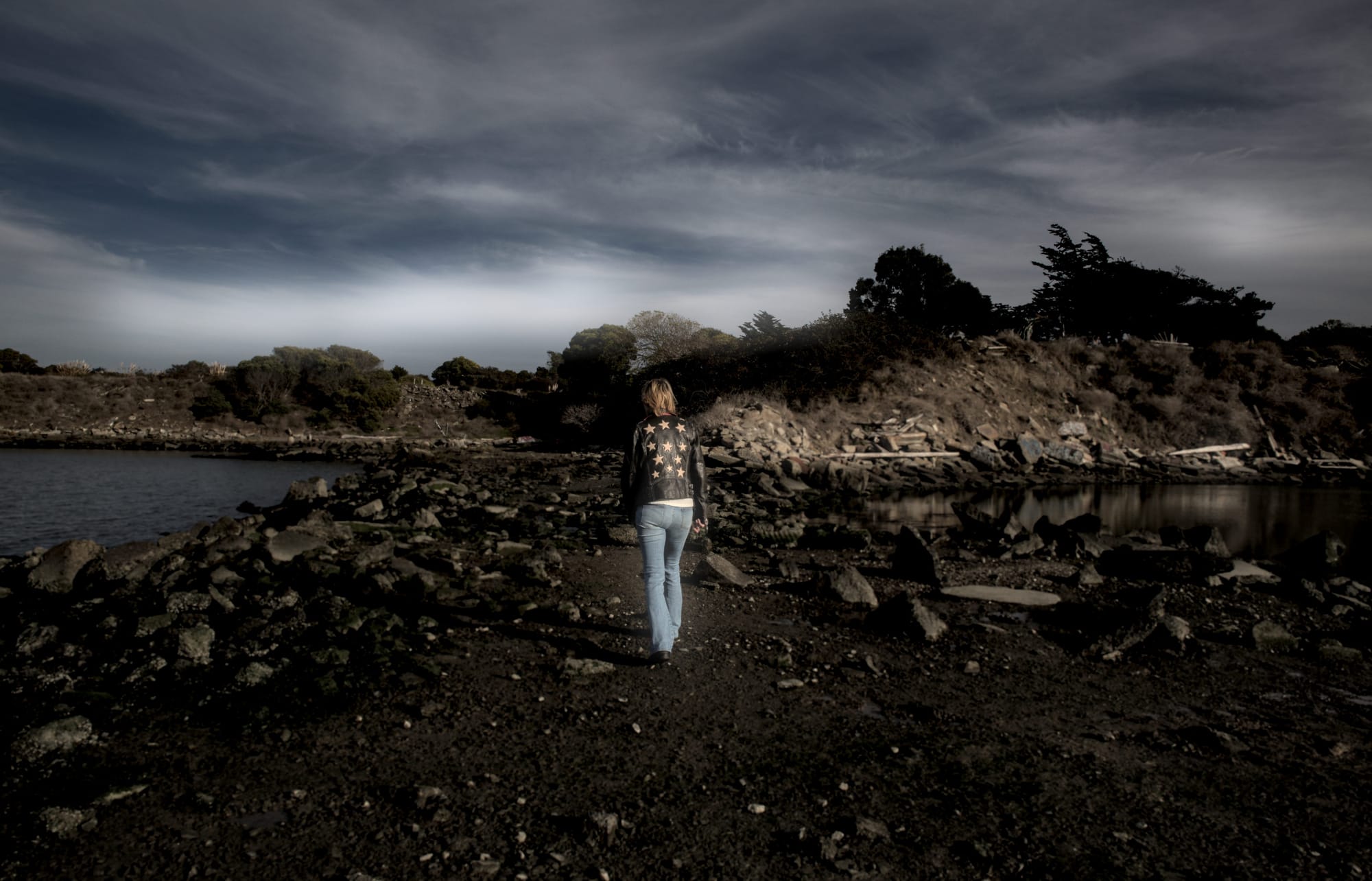
I sometimes read posts in various forums that go something like: "I'm 26 and just now learning X, am I cooked?" My response is absolutely not. In my opinion you're never "cooked." Just don't follow my path. Even if you could, you probably wouldn't want to. Everyone's path is different. This one is mine.
My best piece of advice is to try something new every day. Always try to do your best work, push yourself out of your comfort zone, reach for it. But also, be patient and gentle with yourself.
